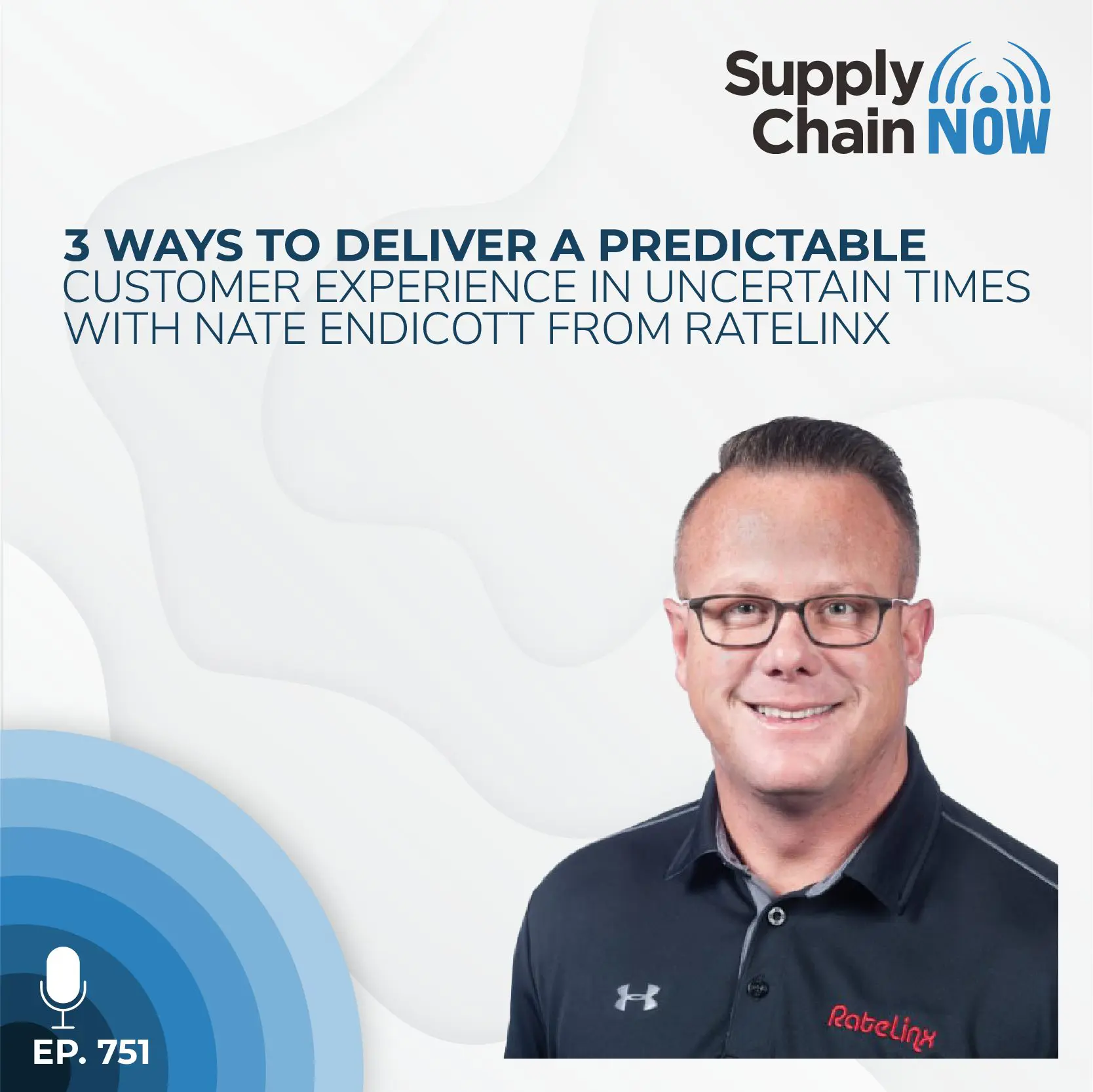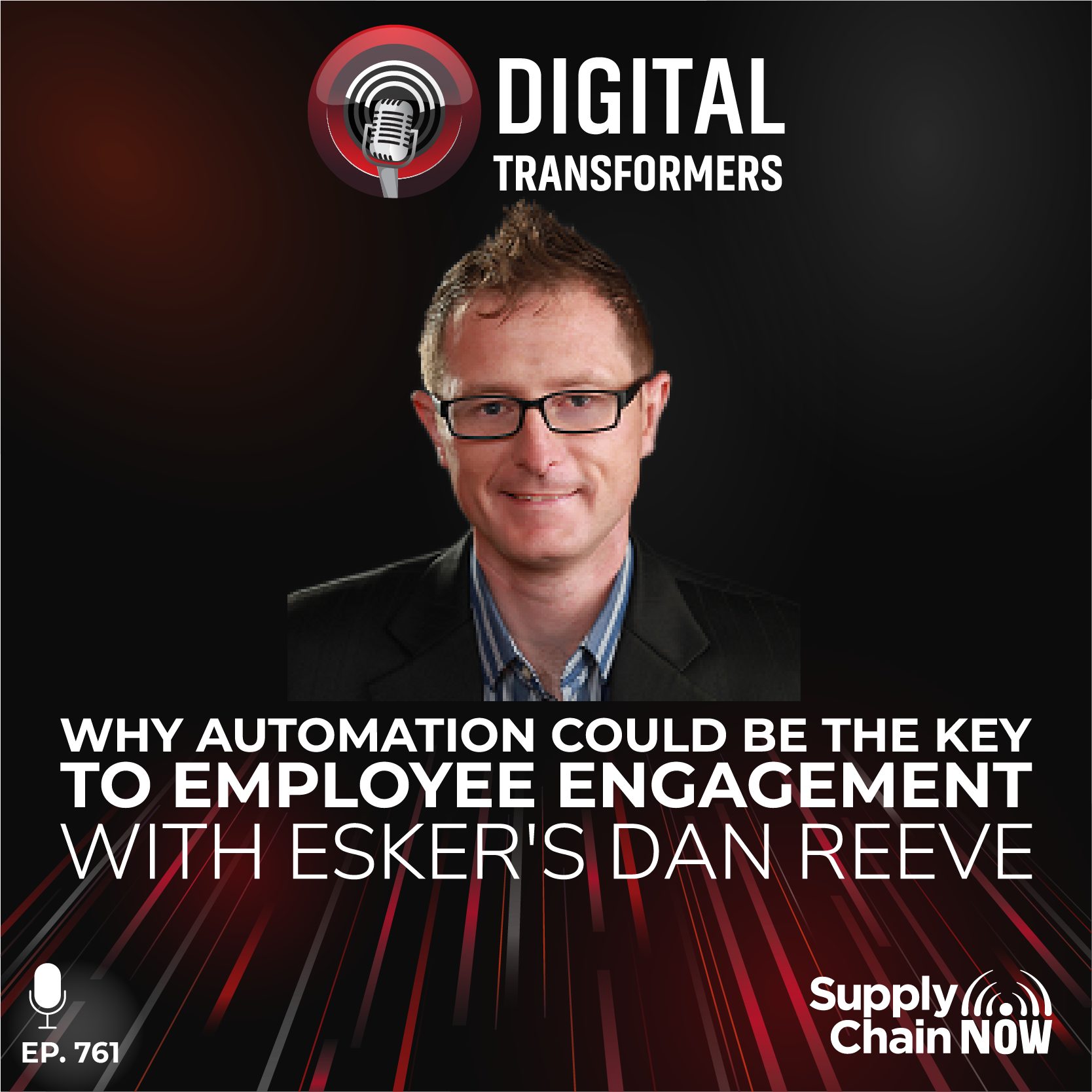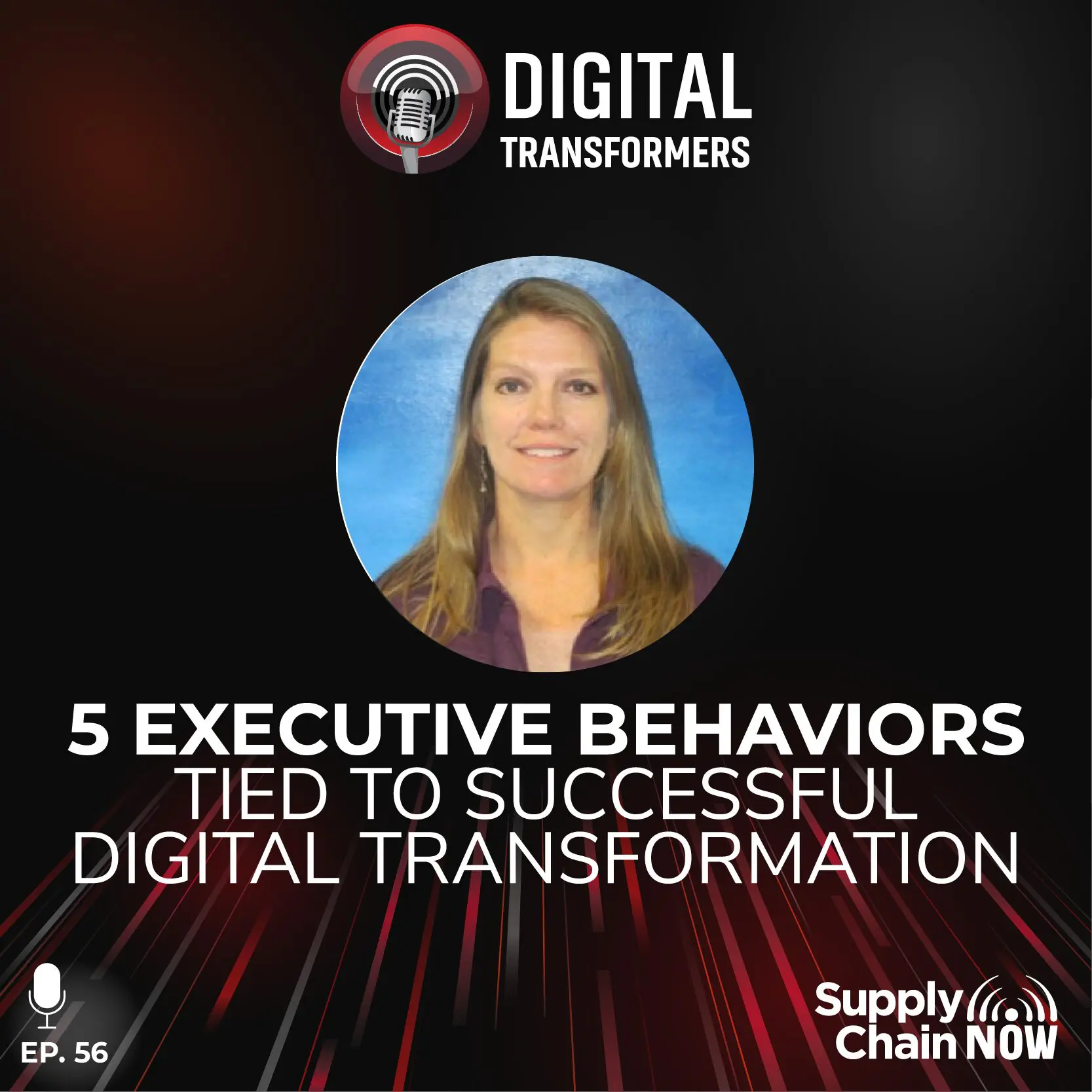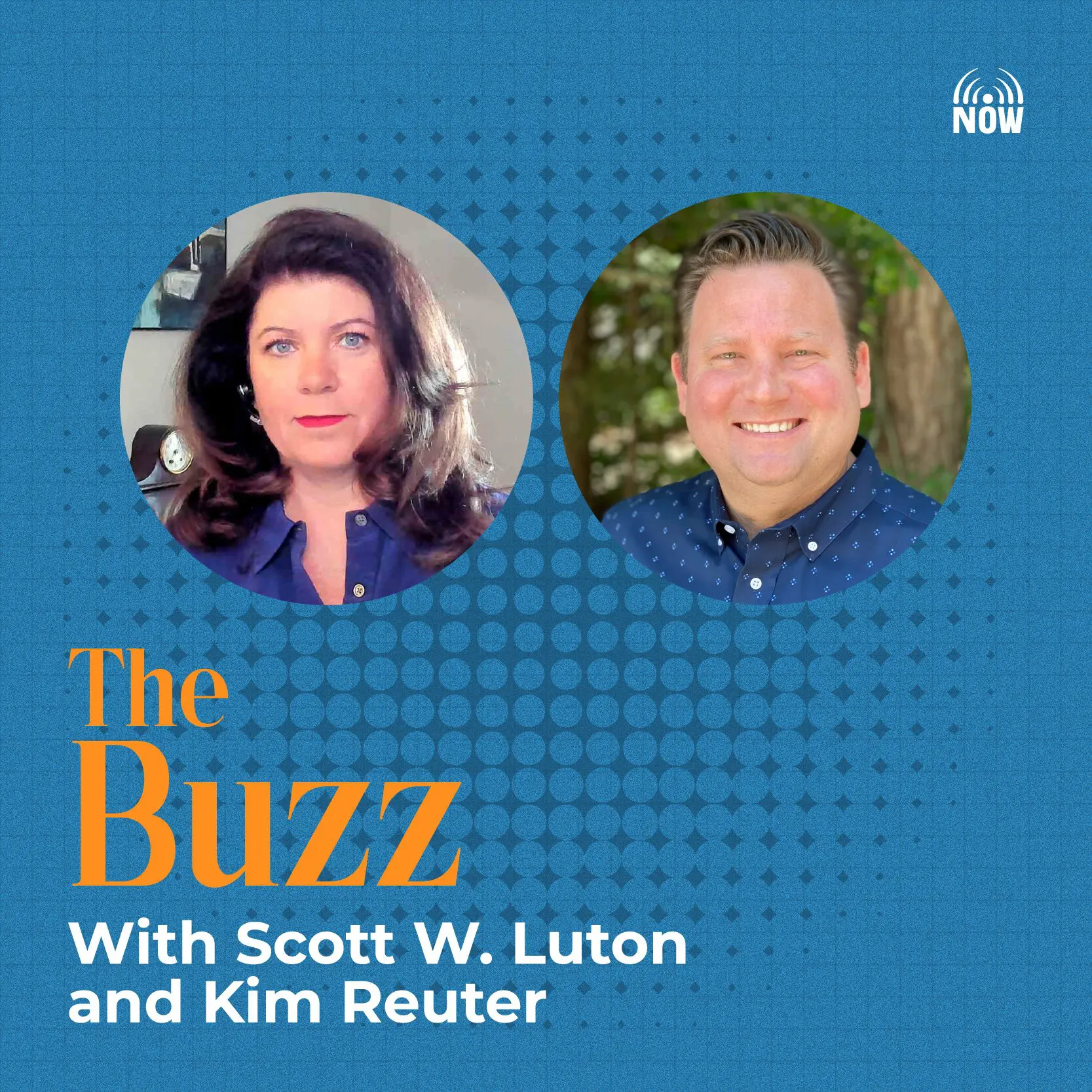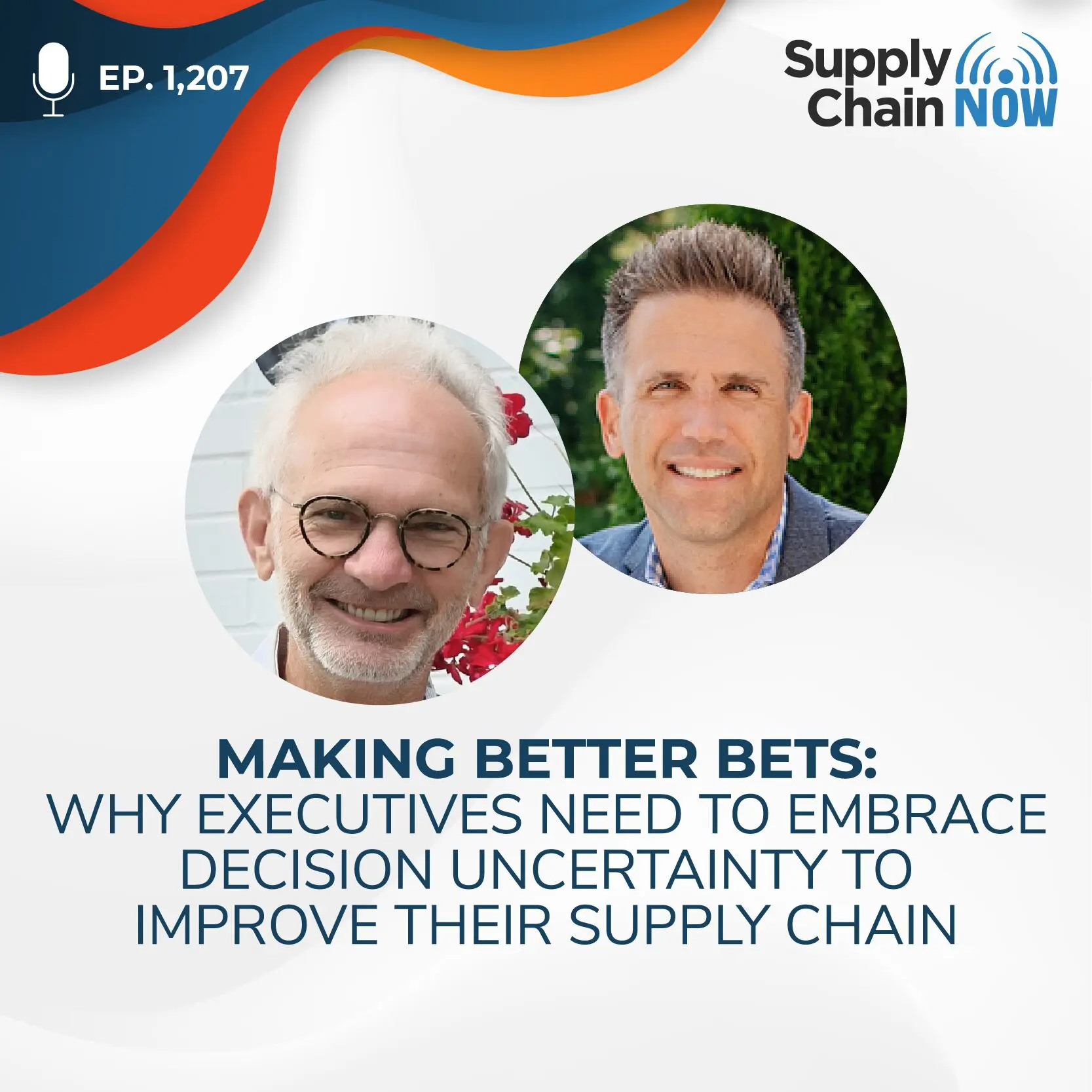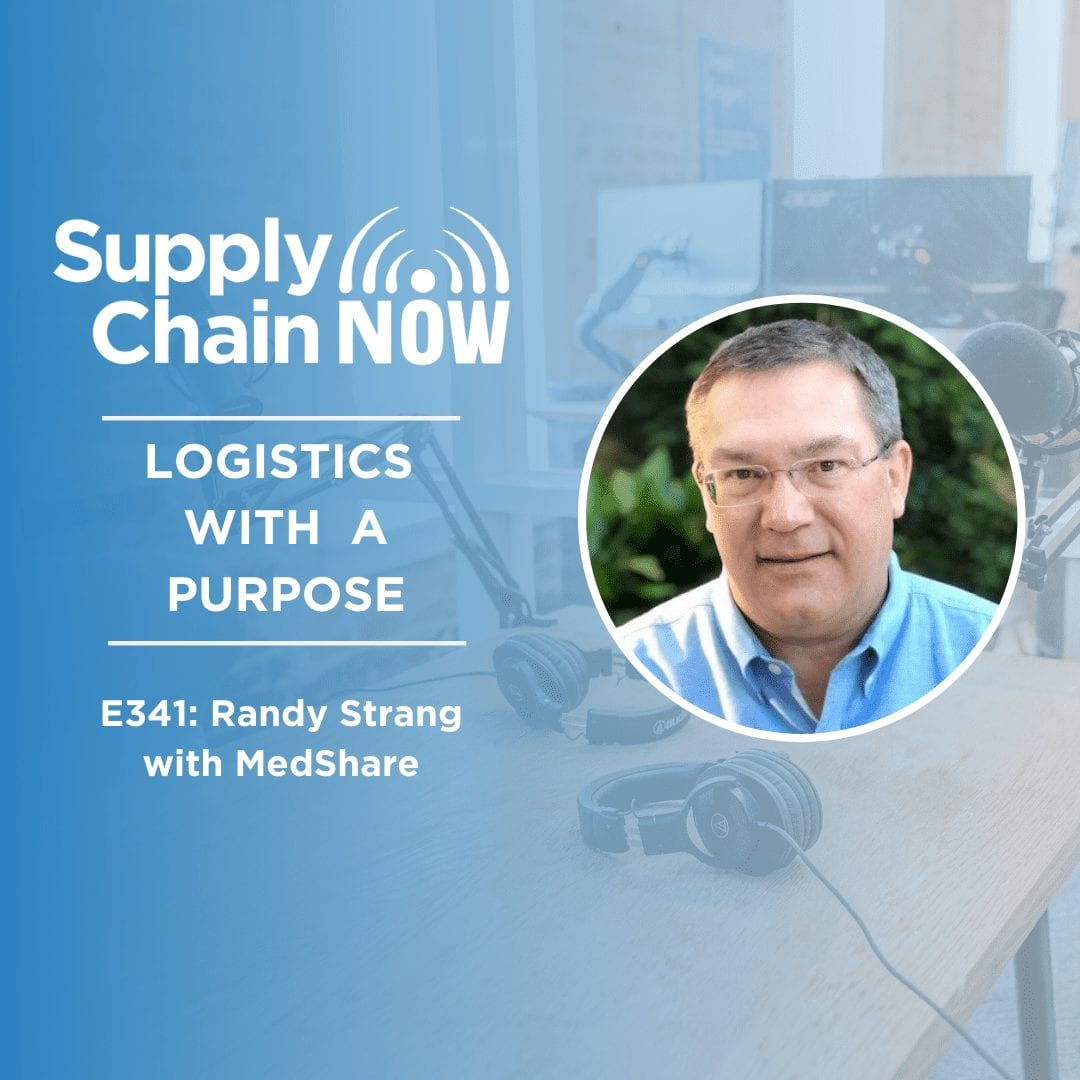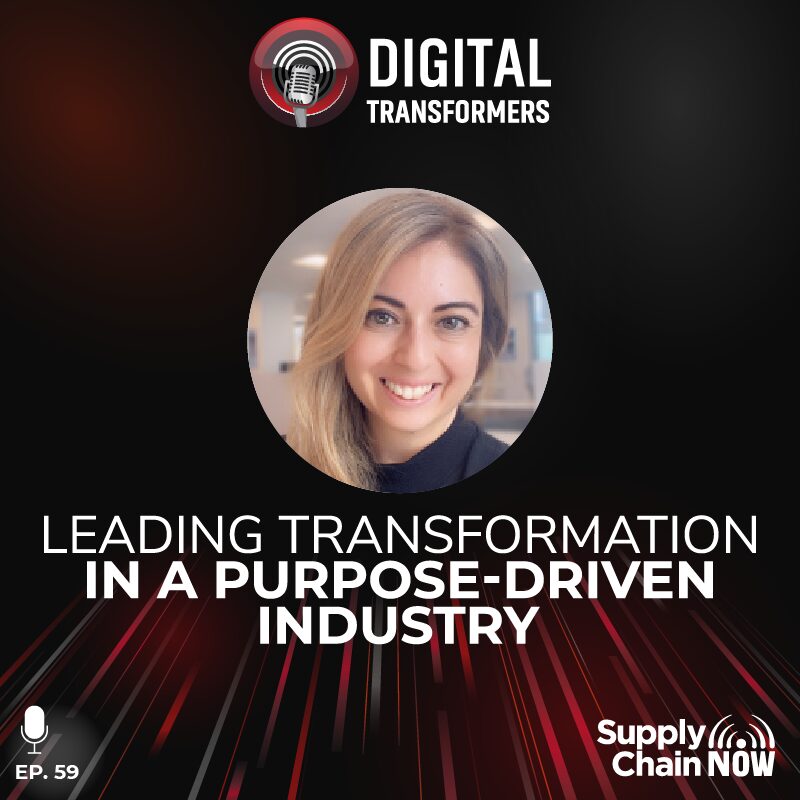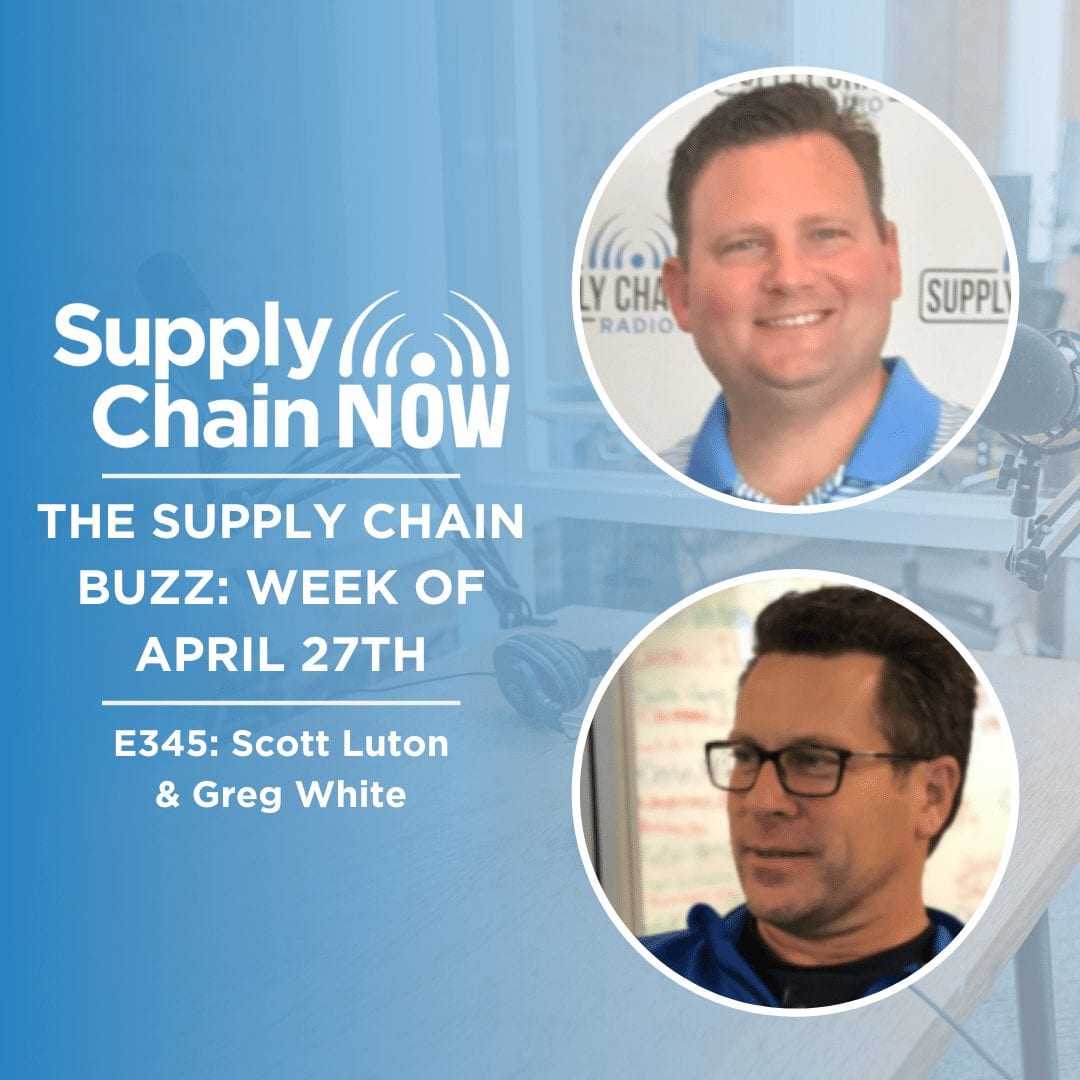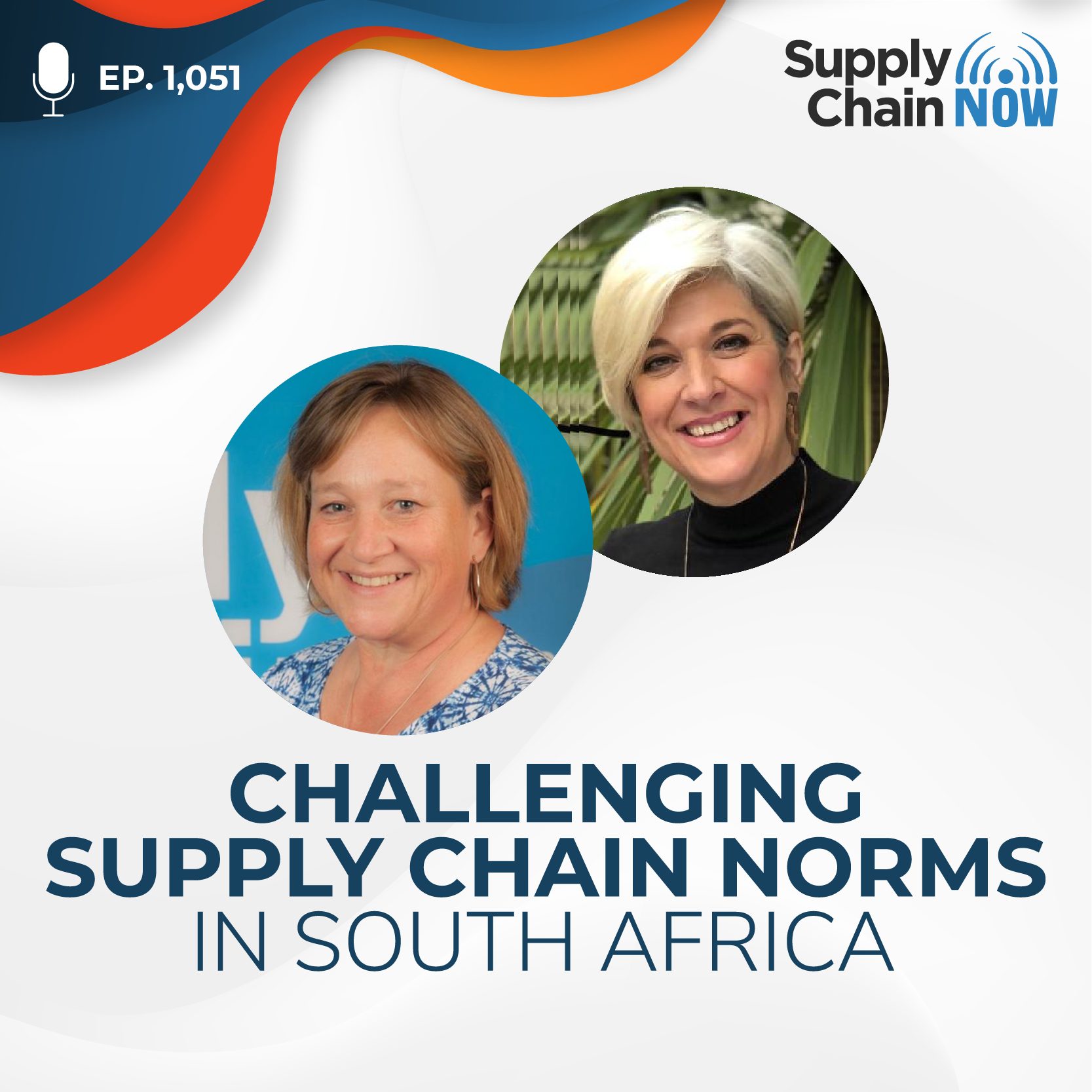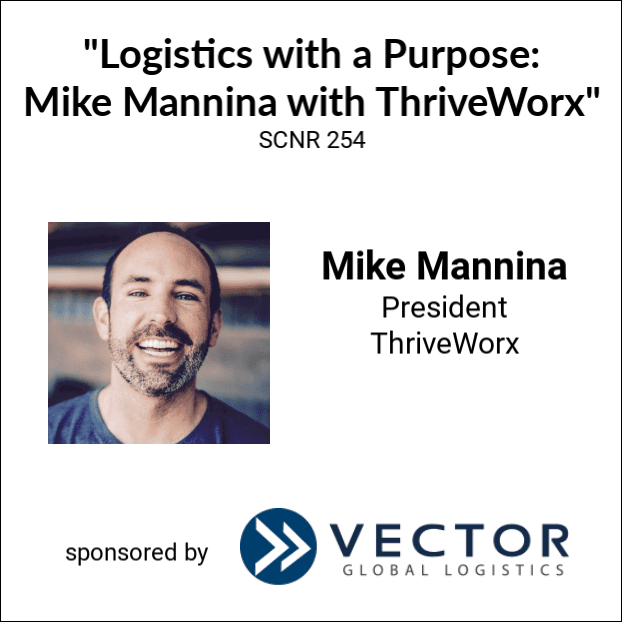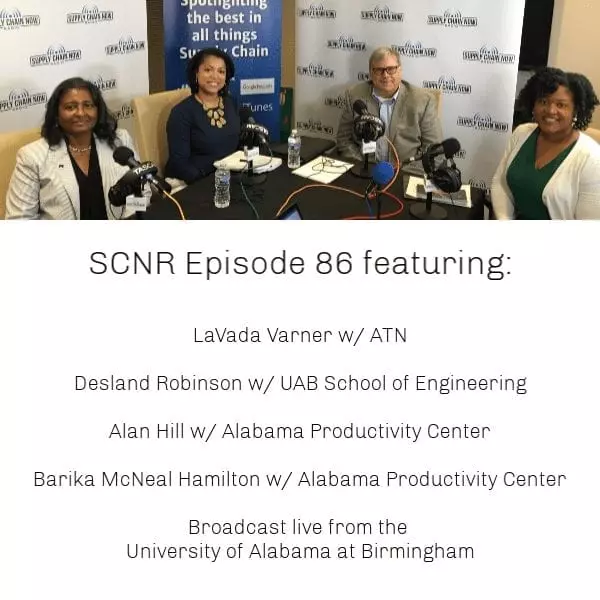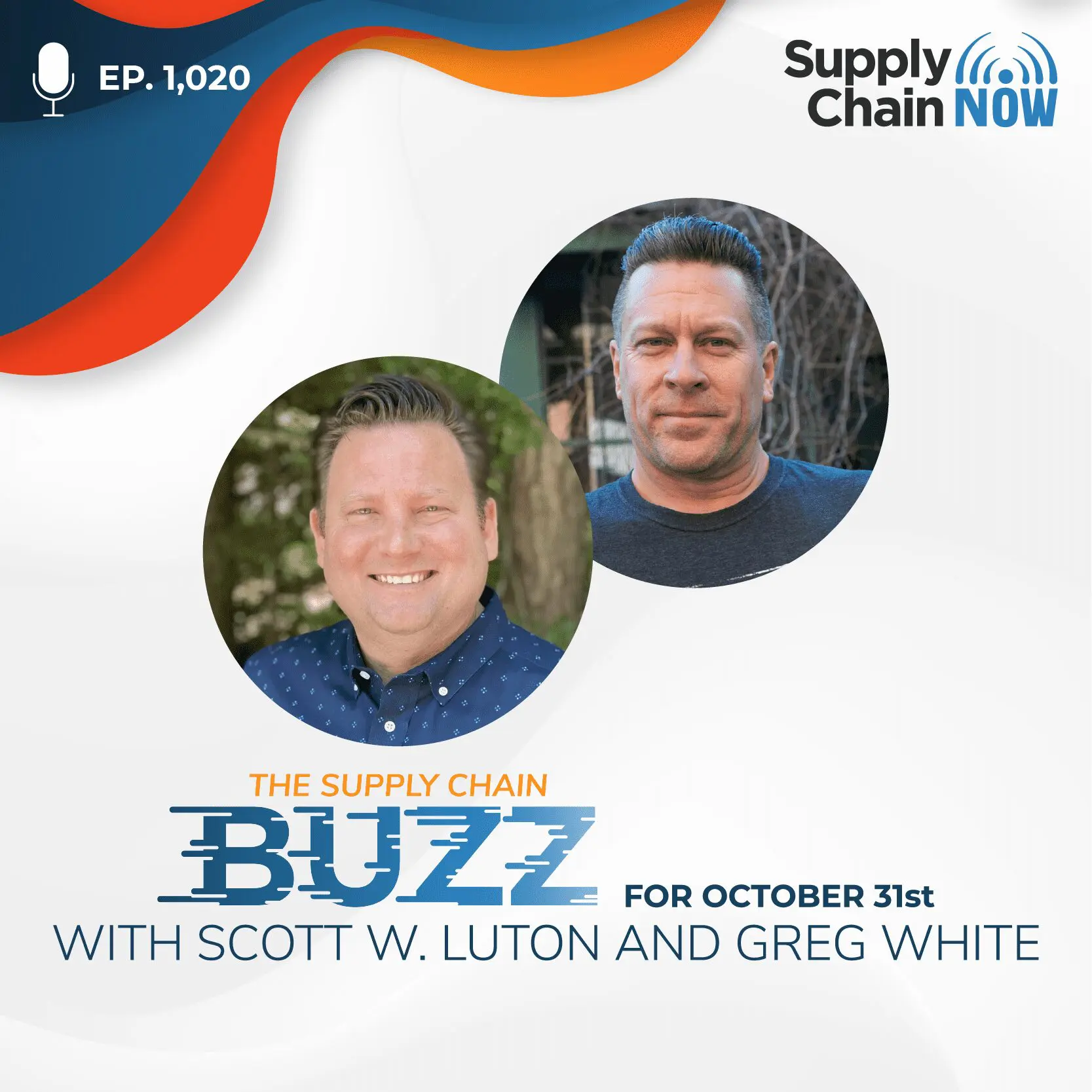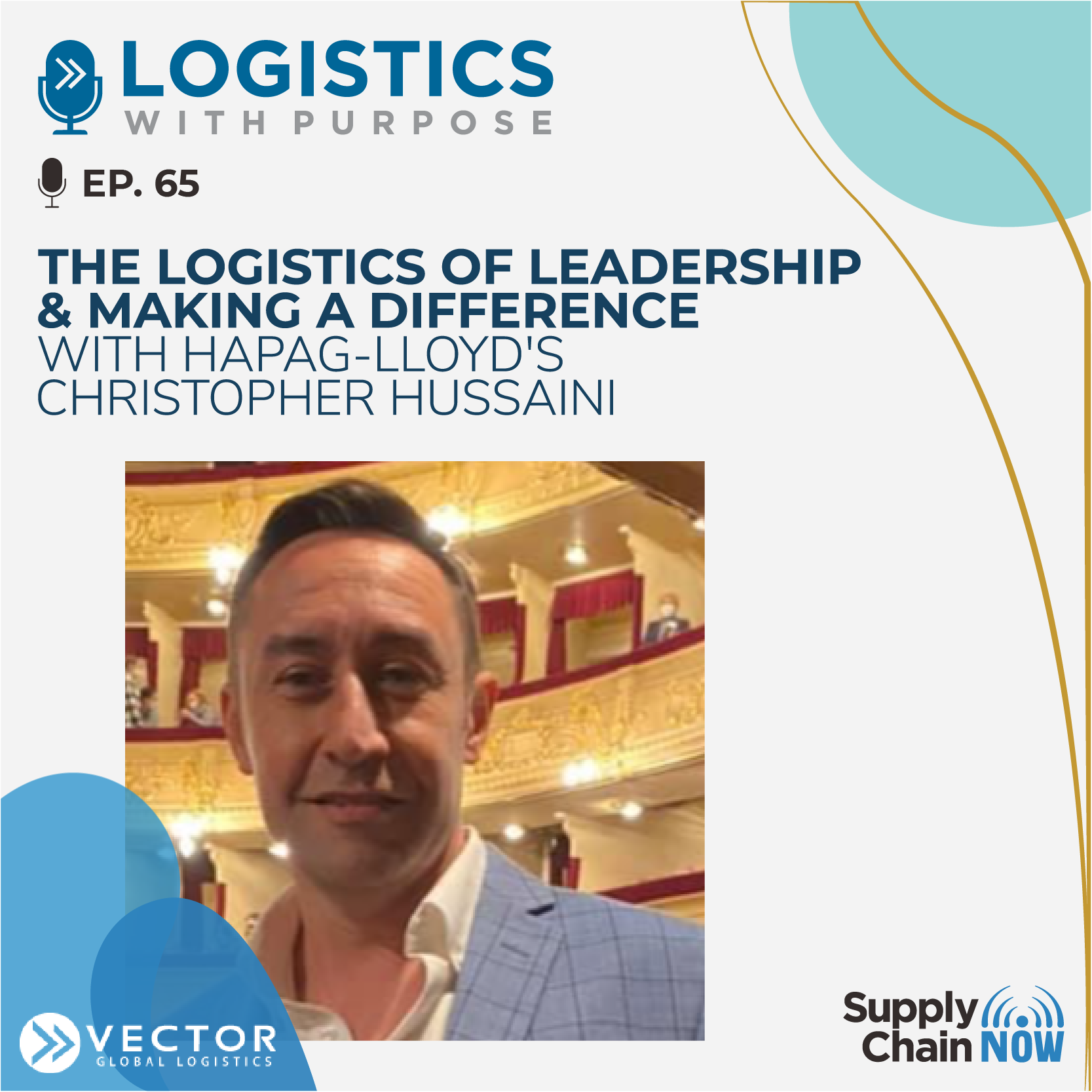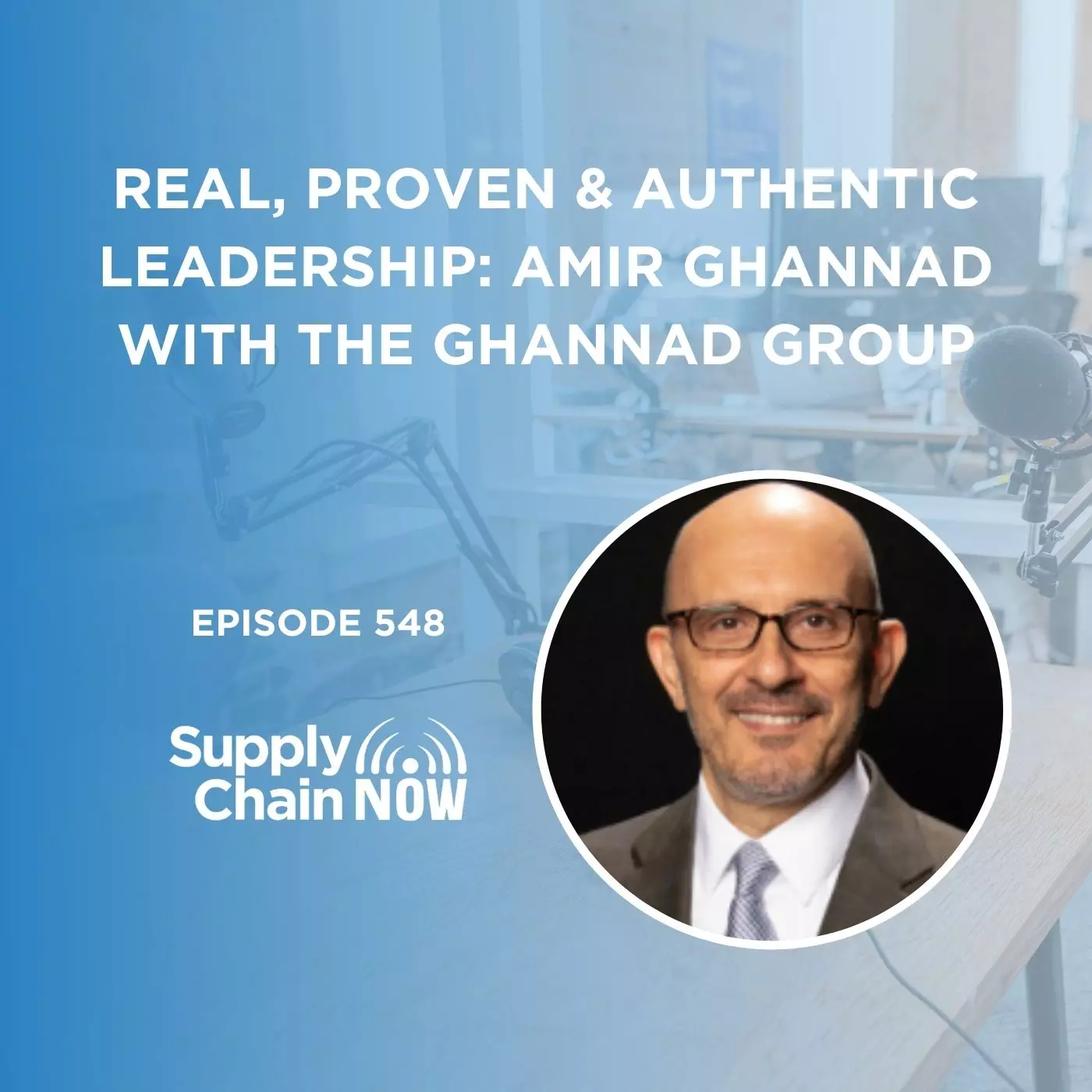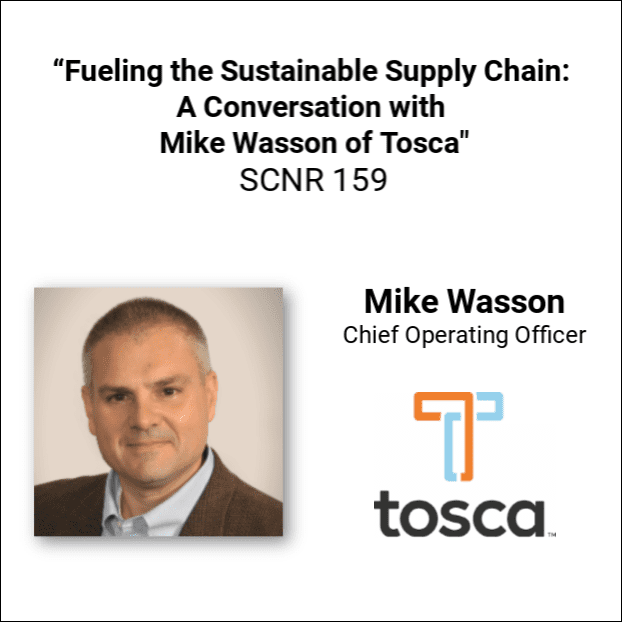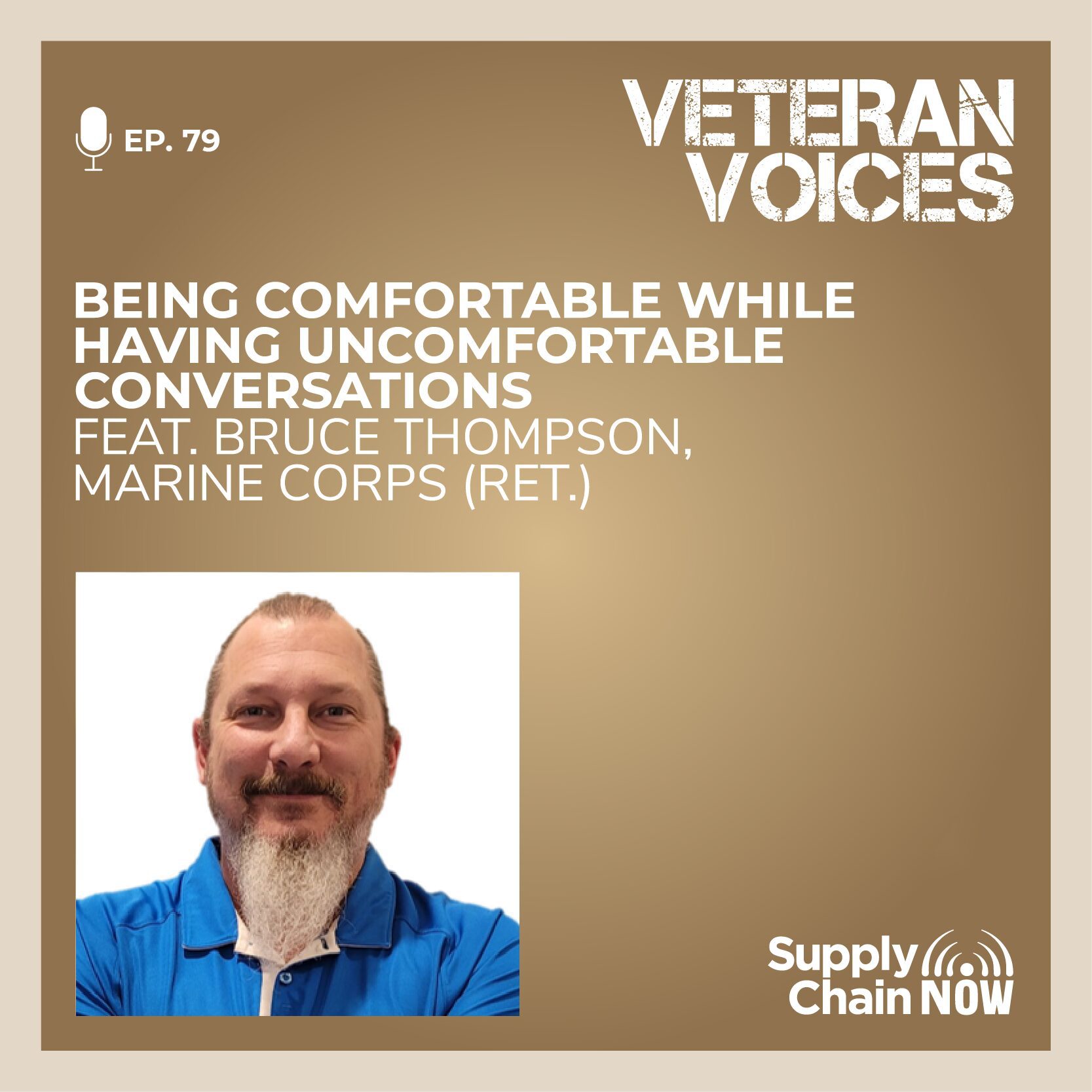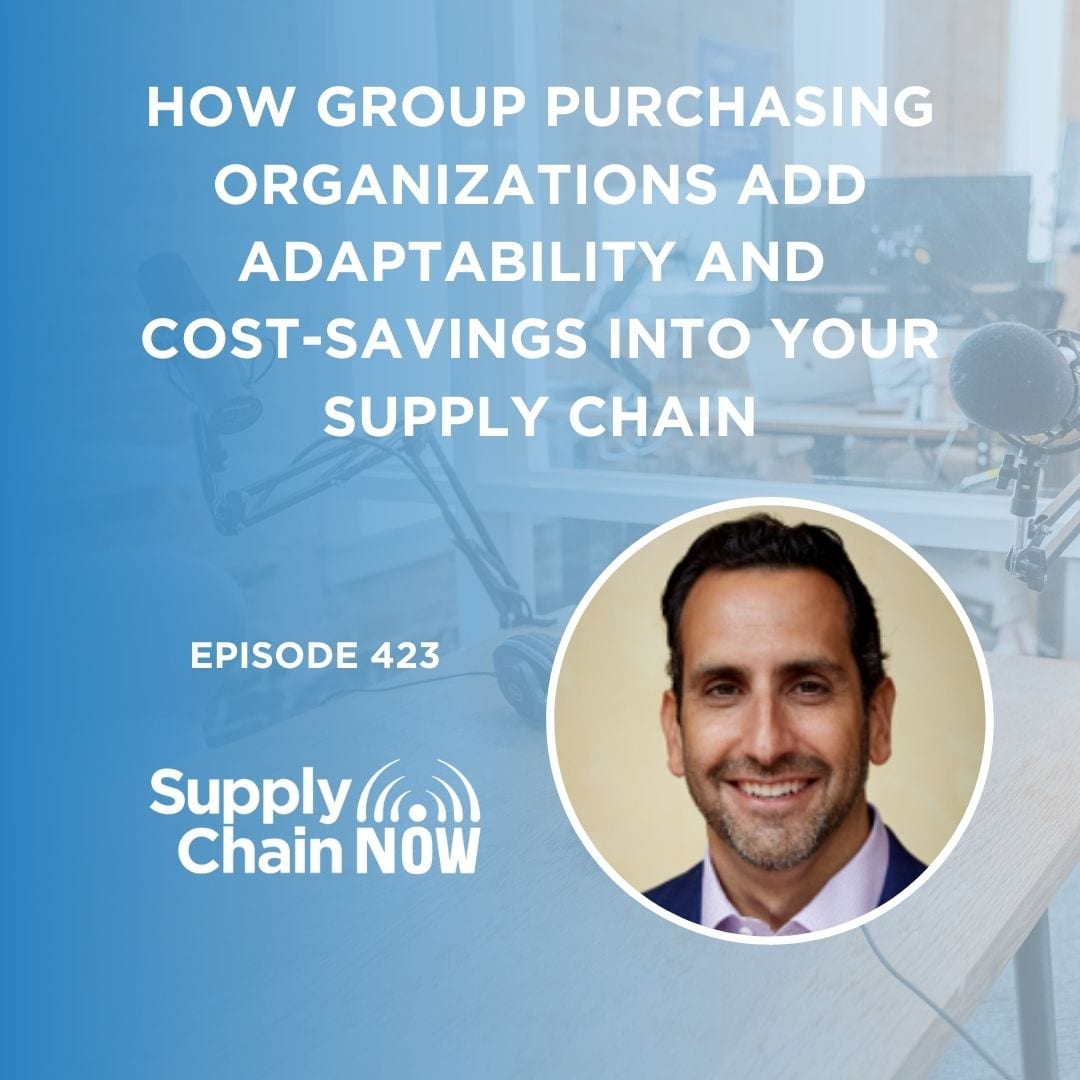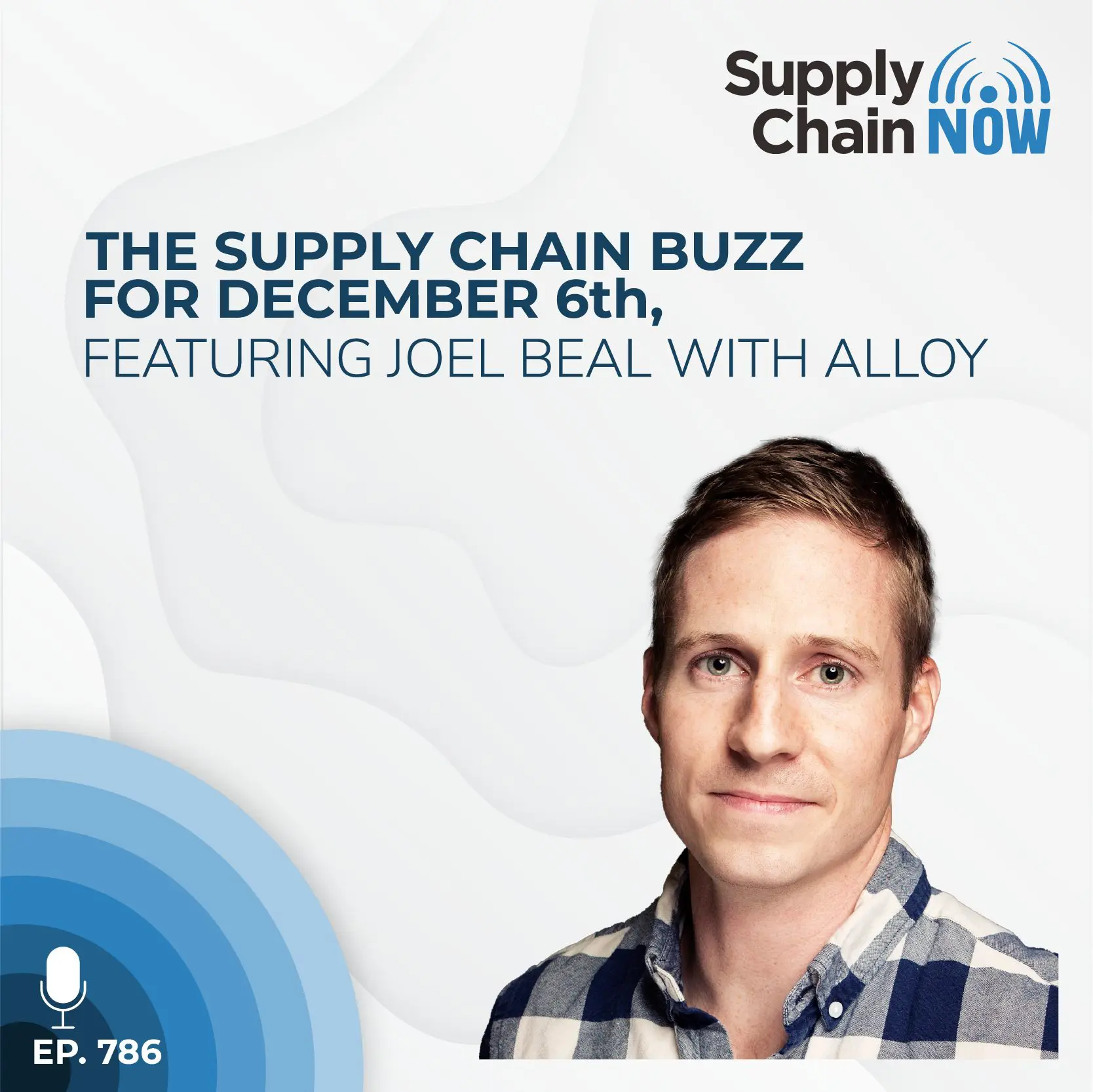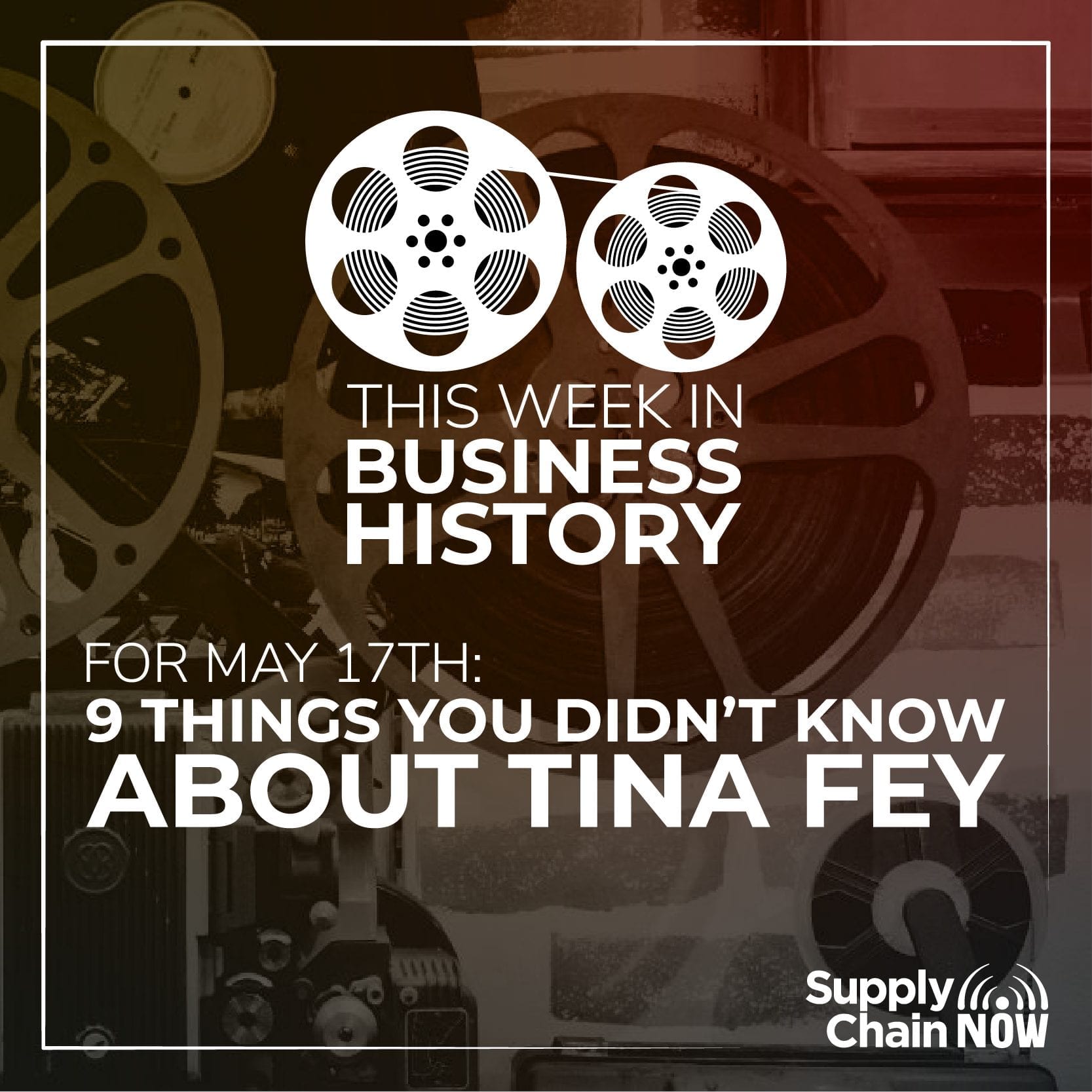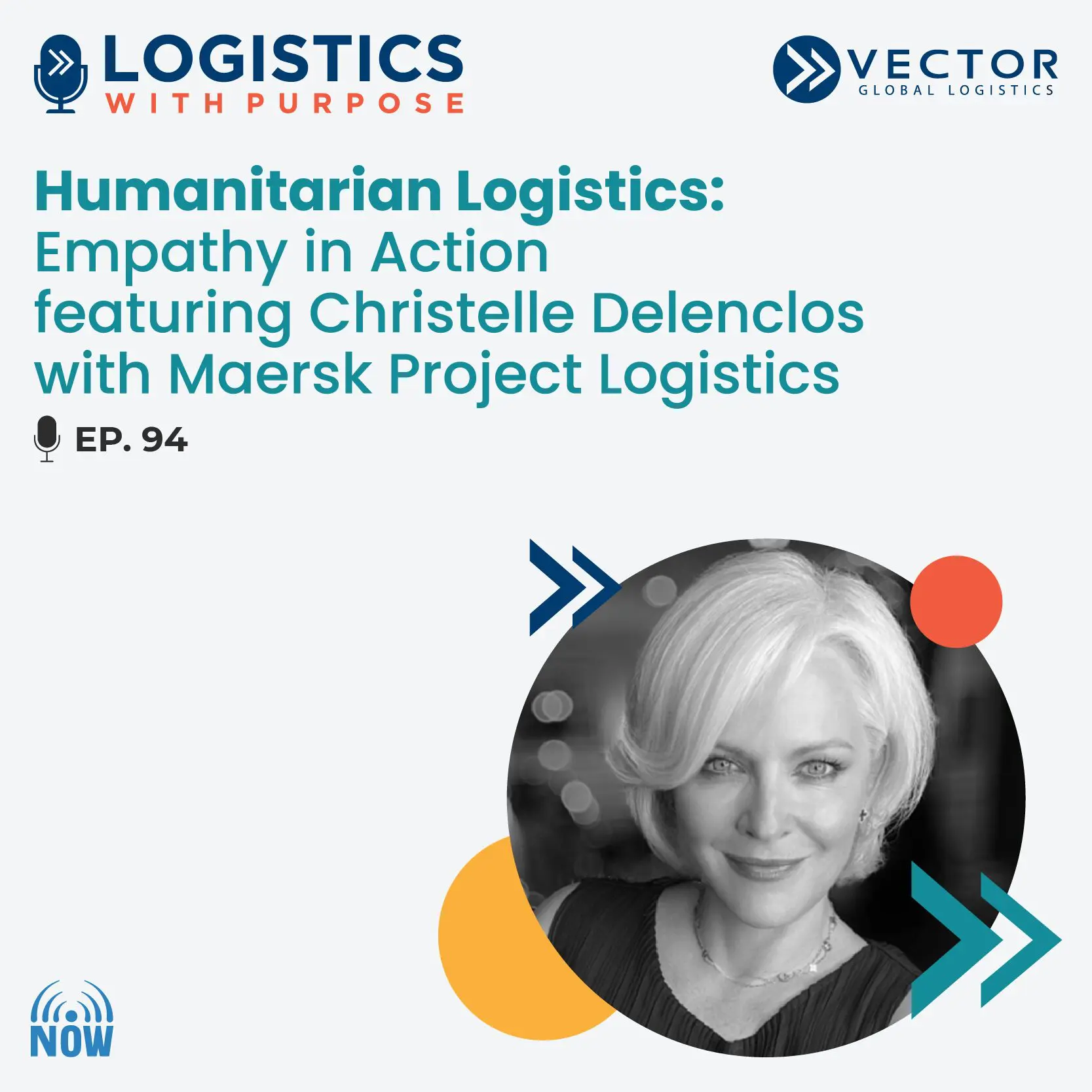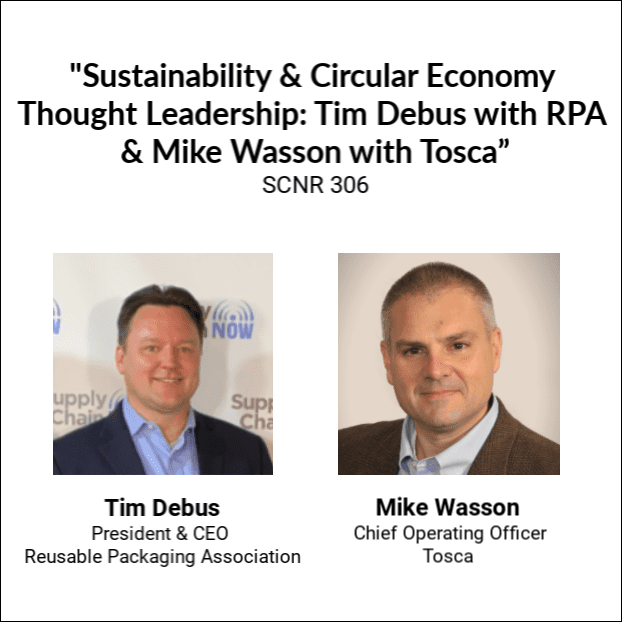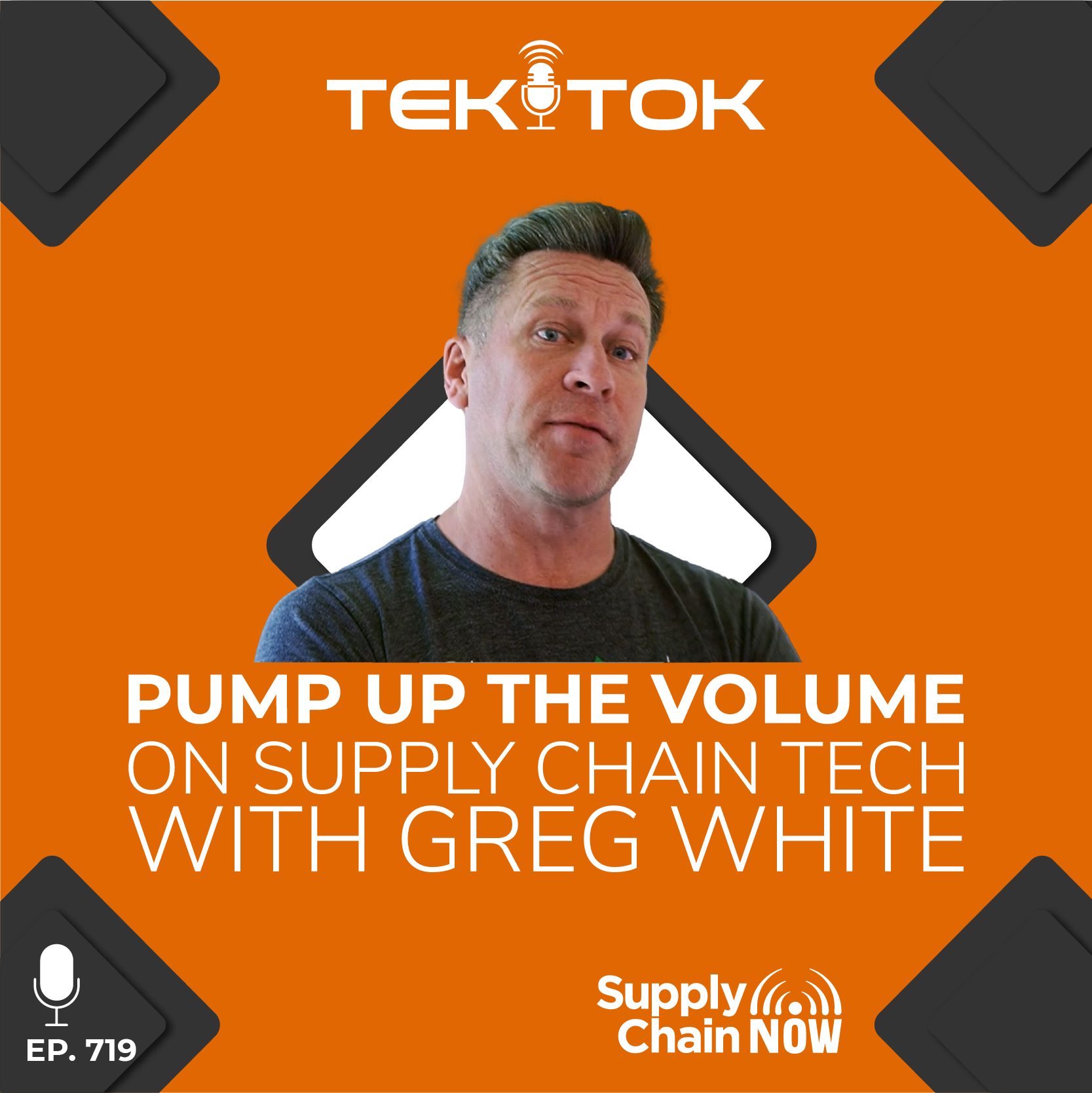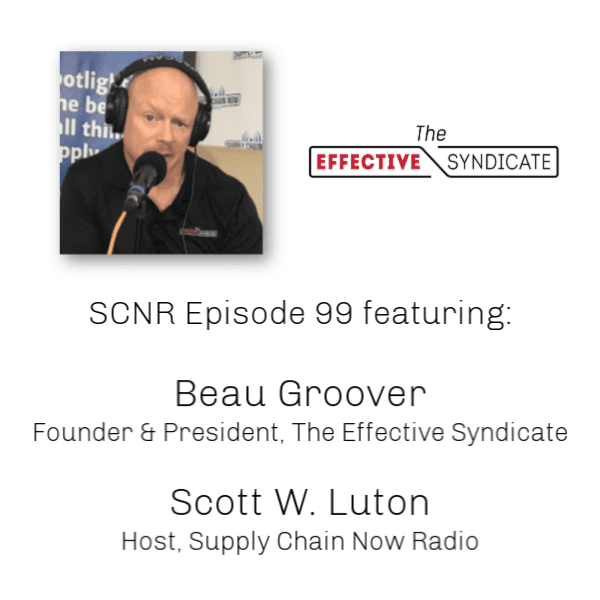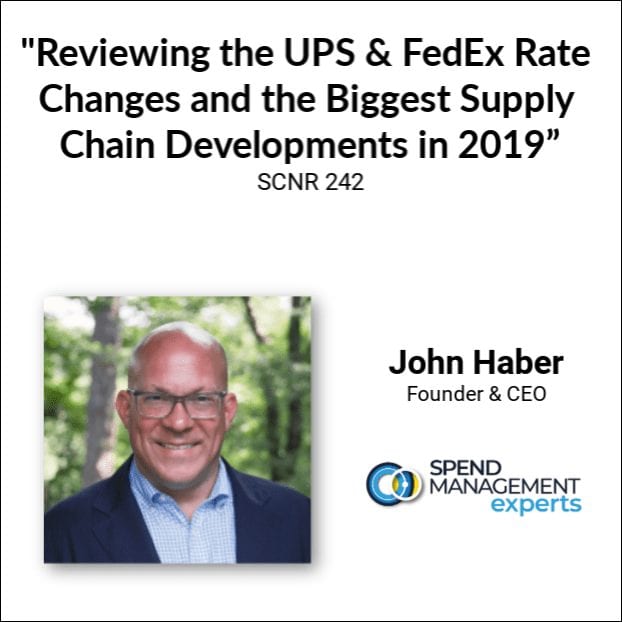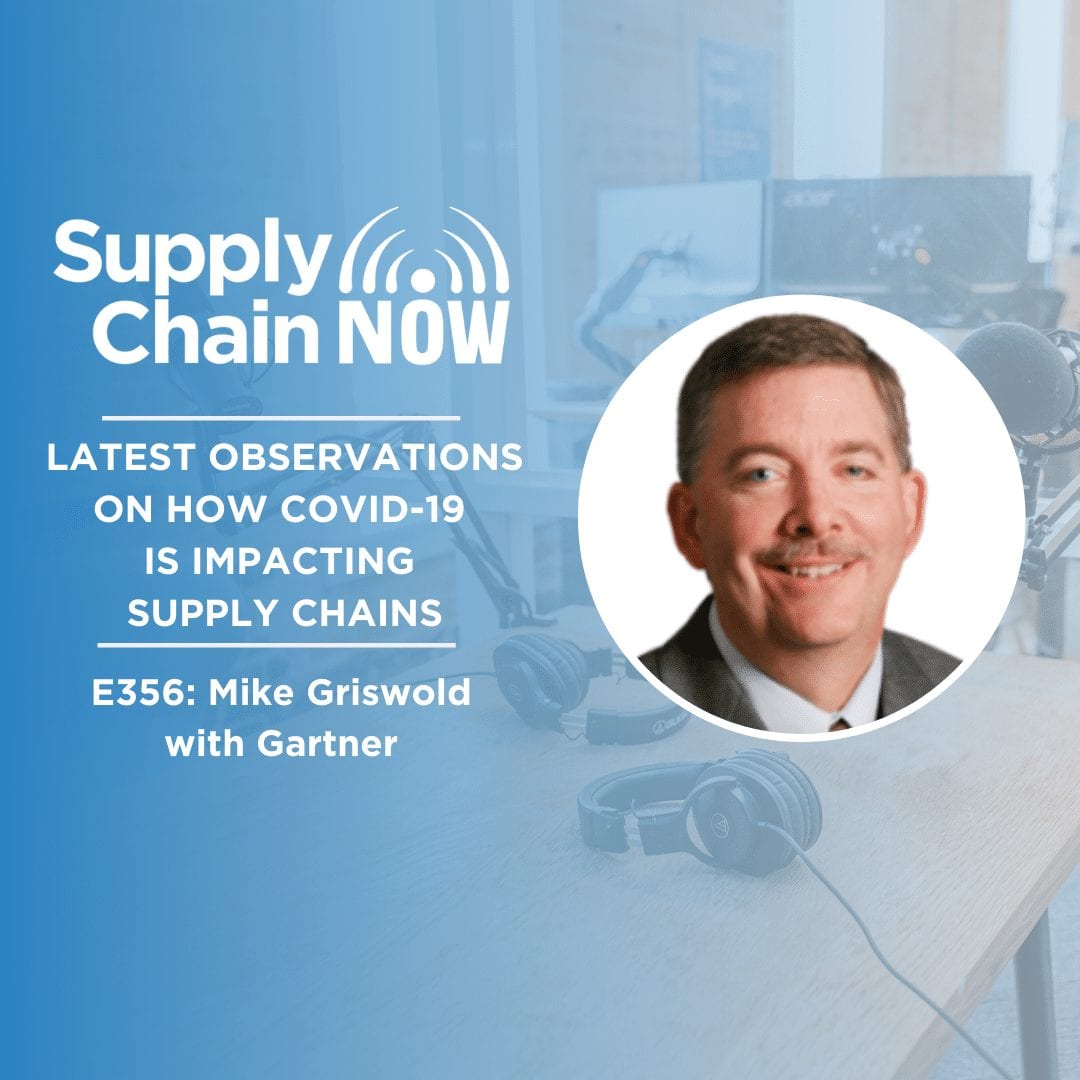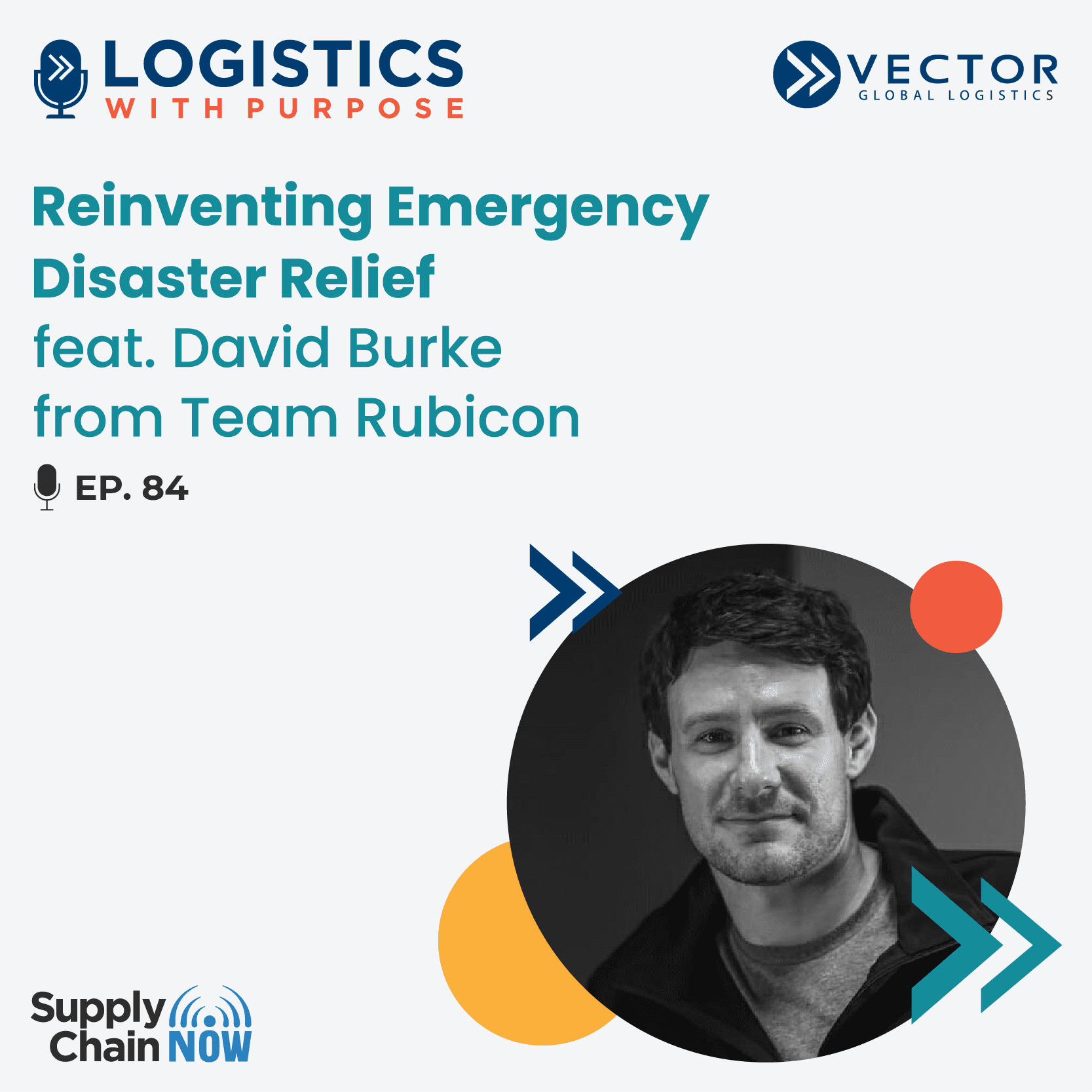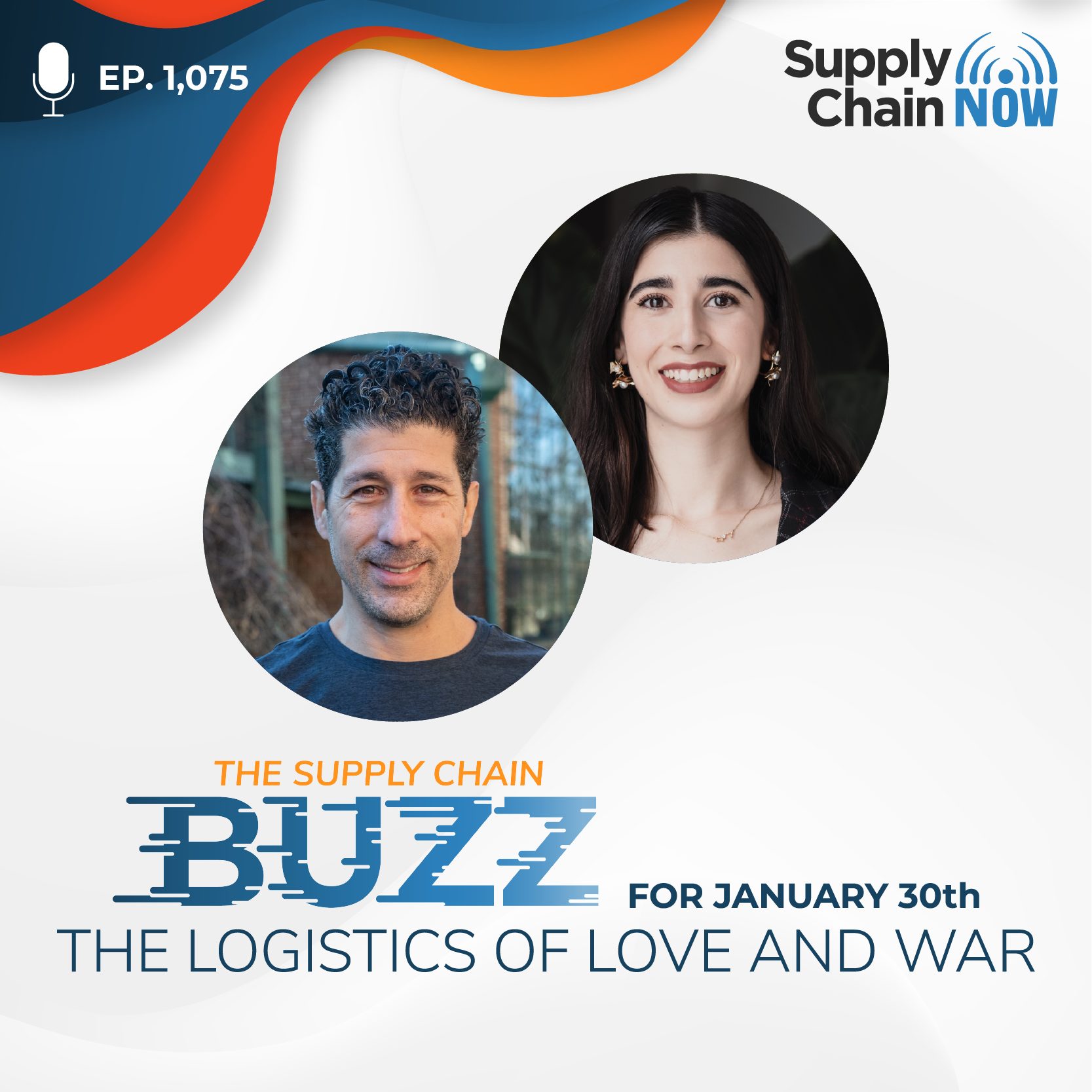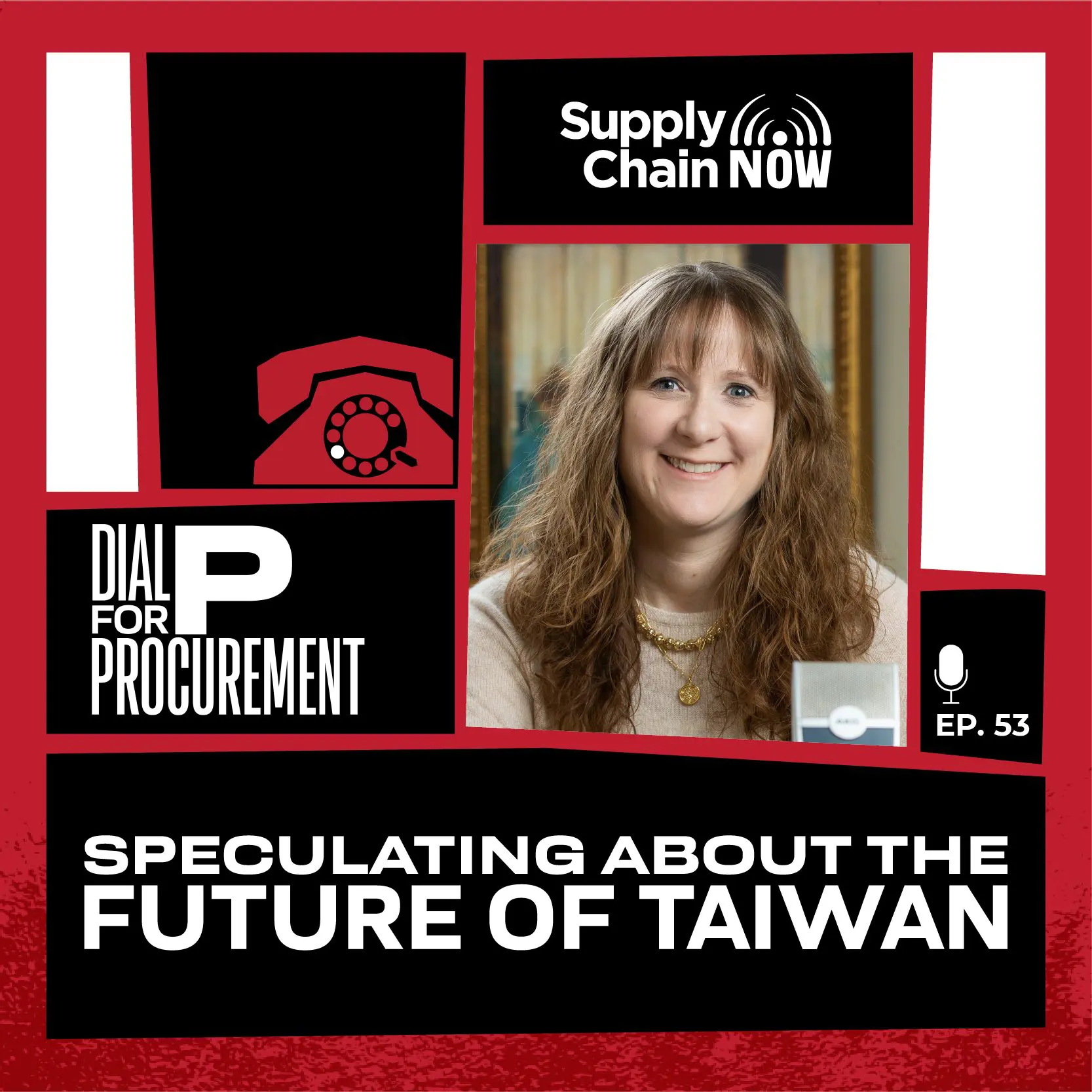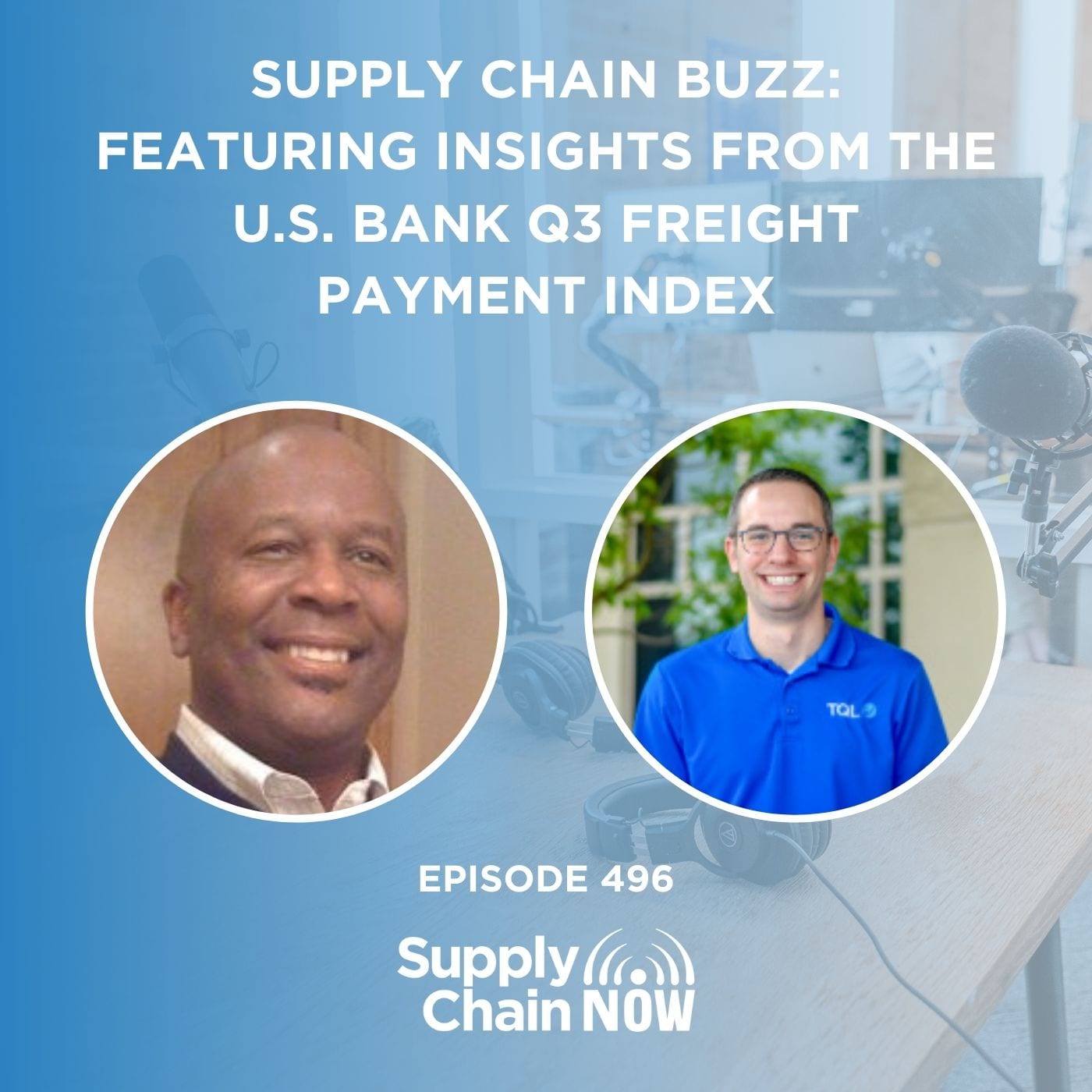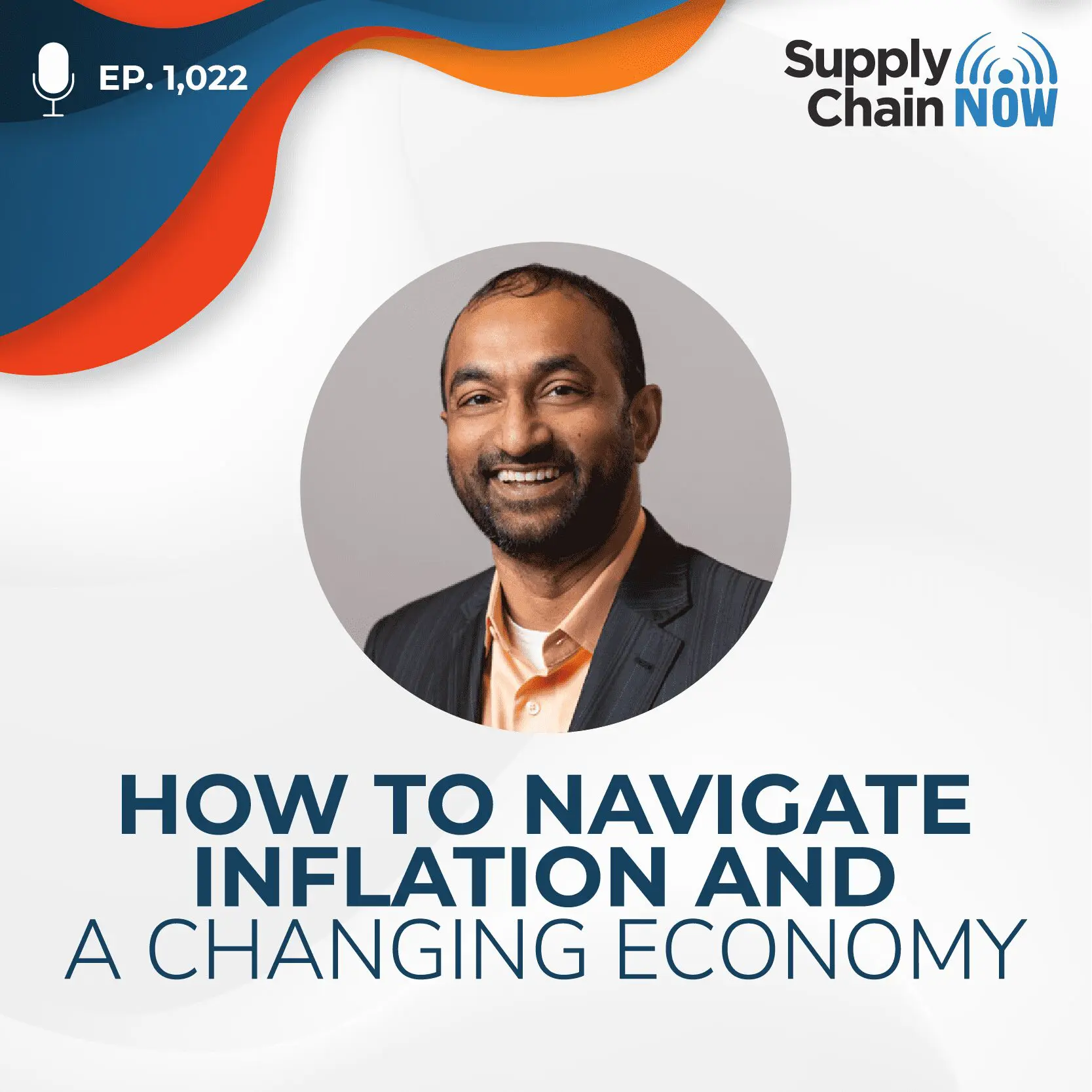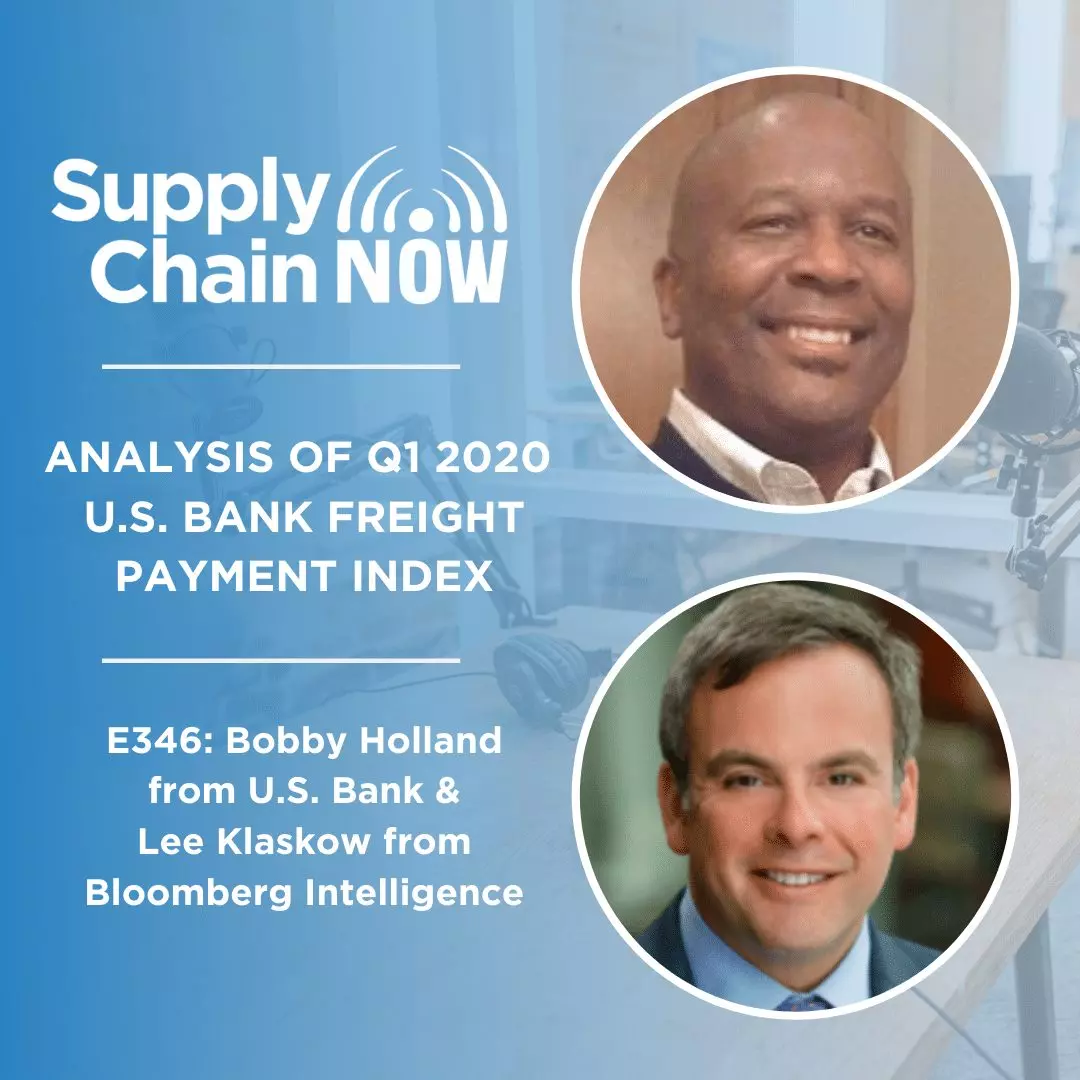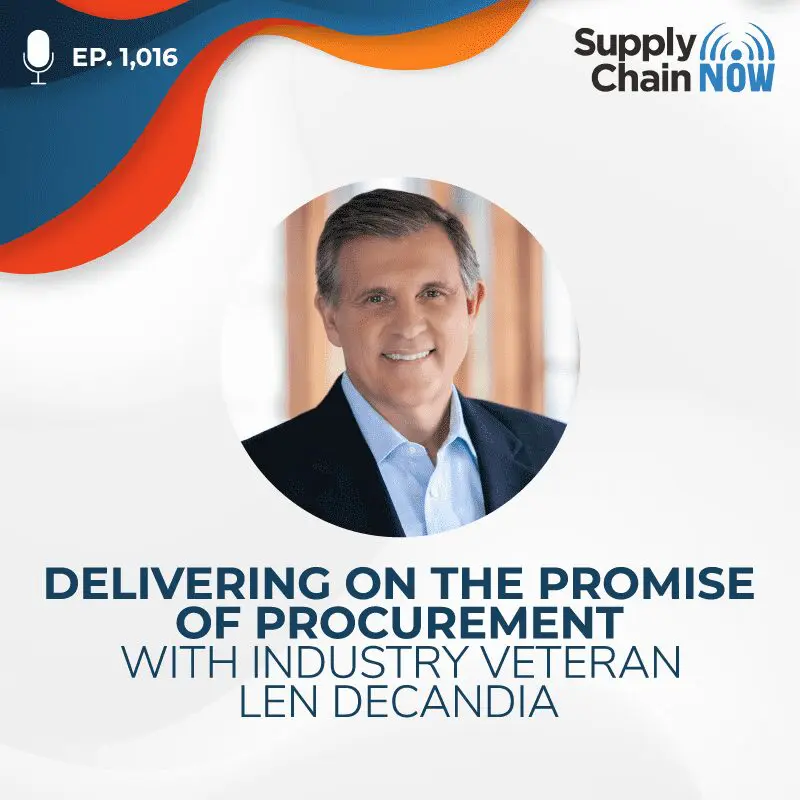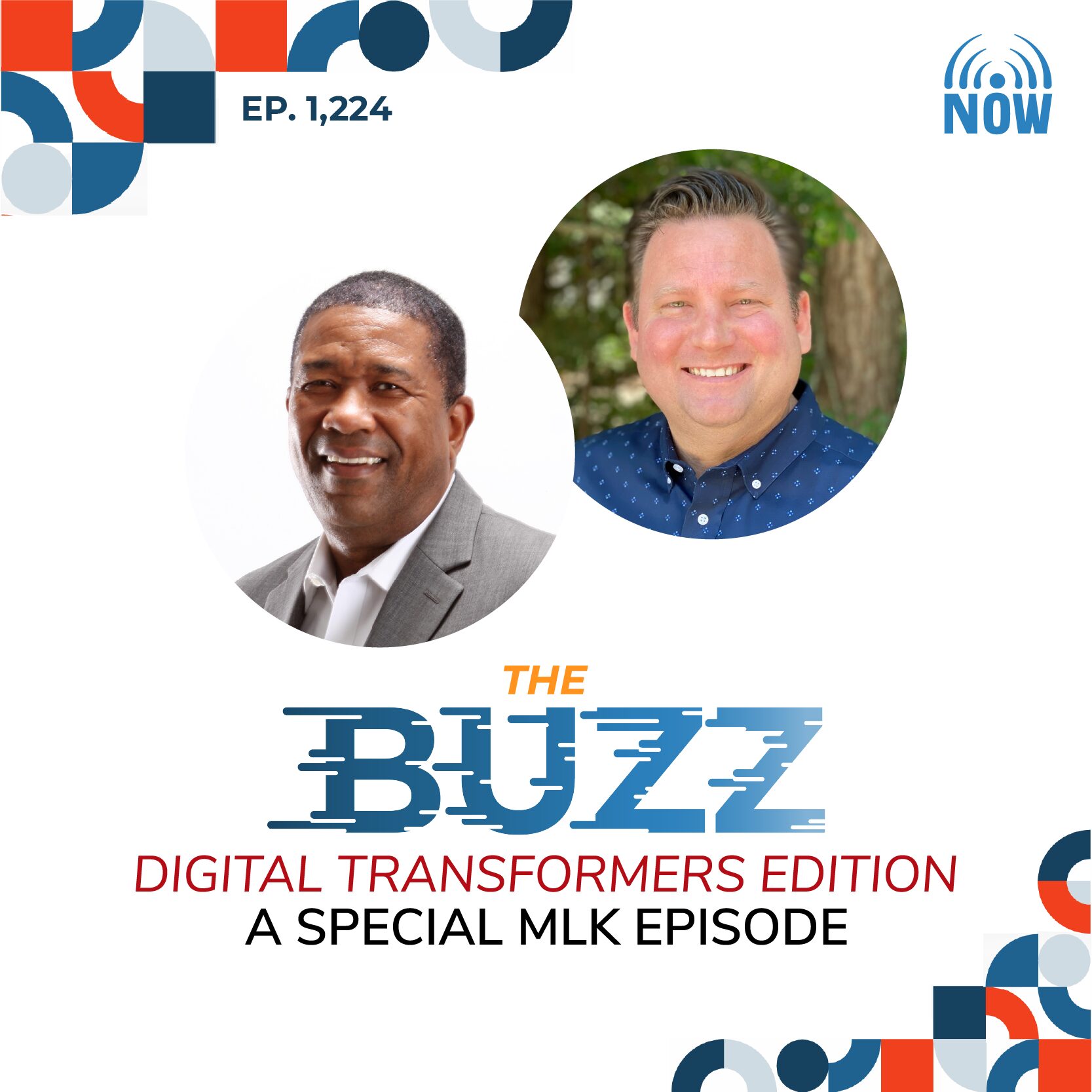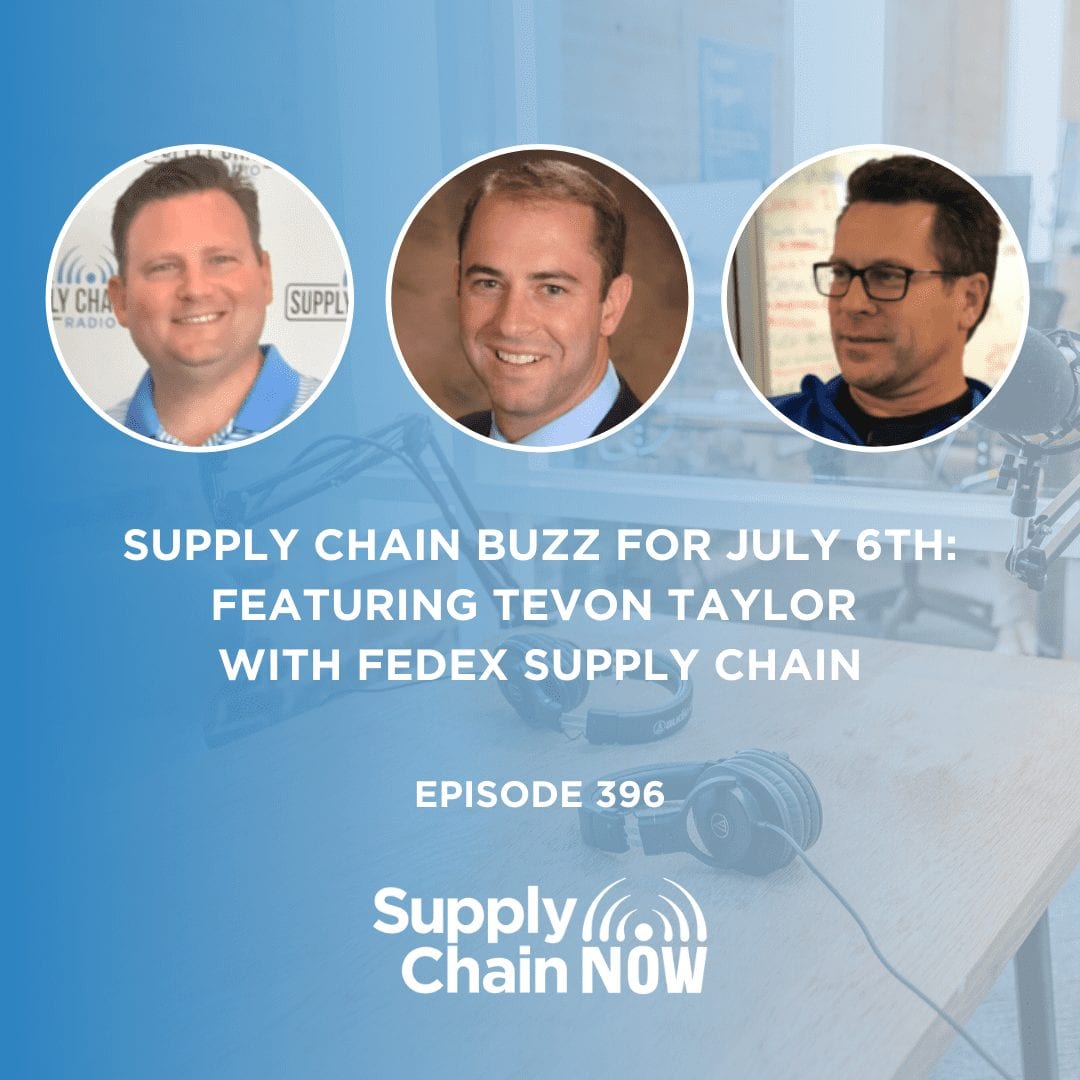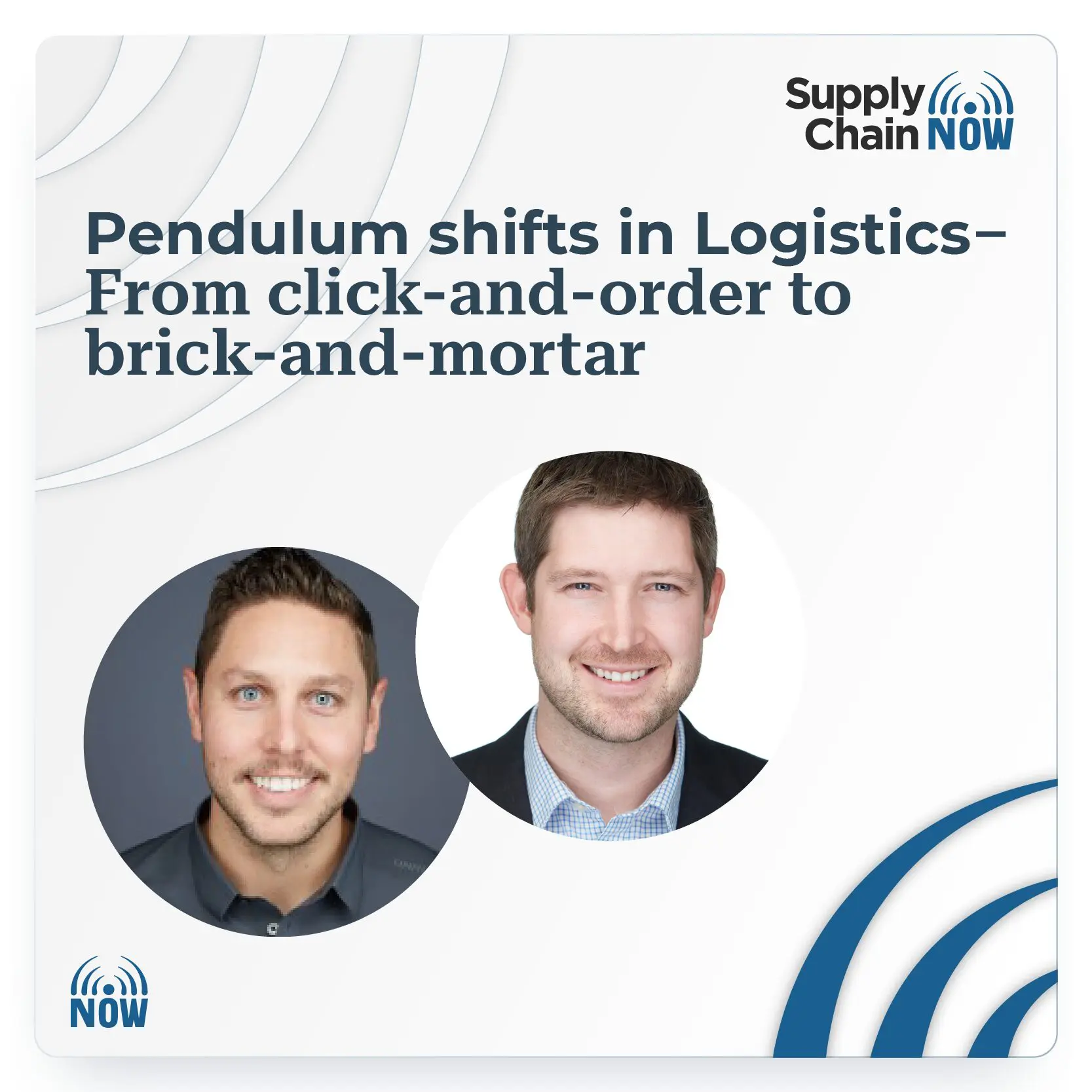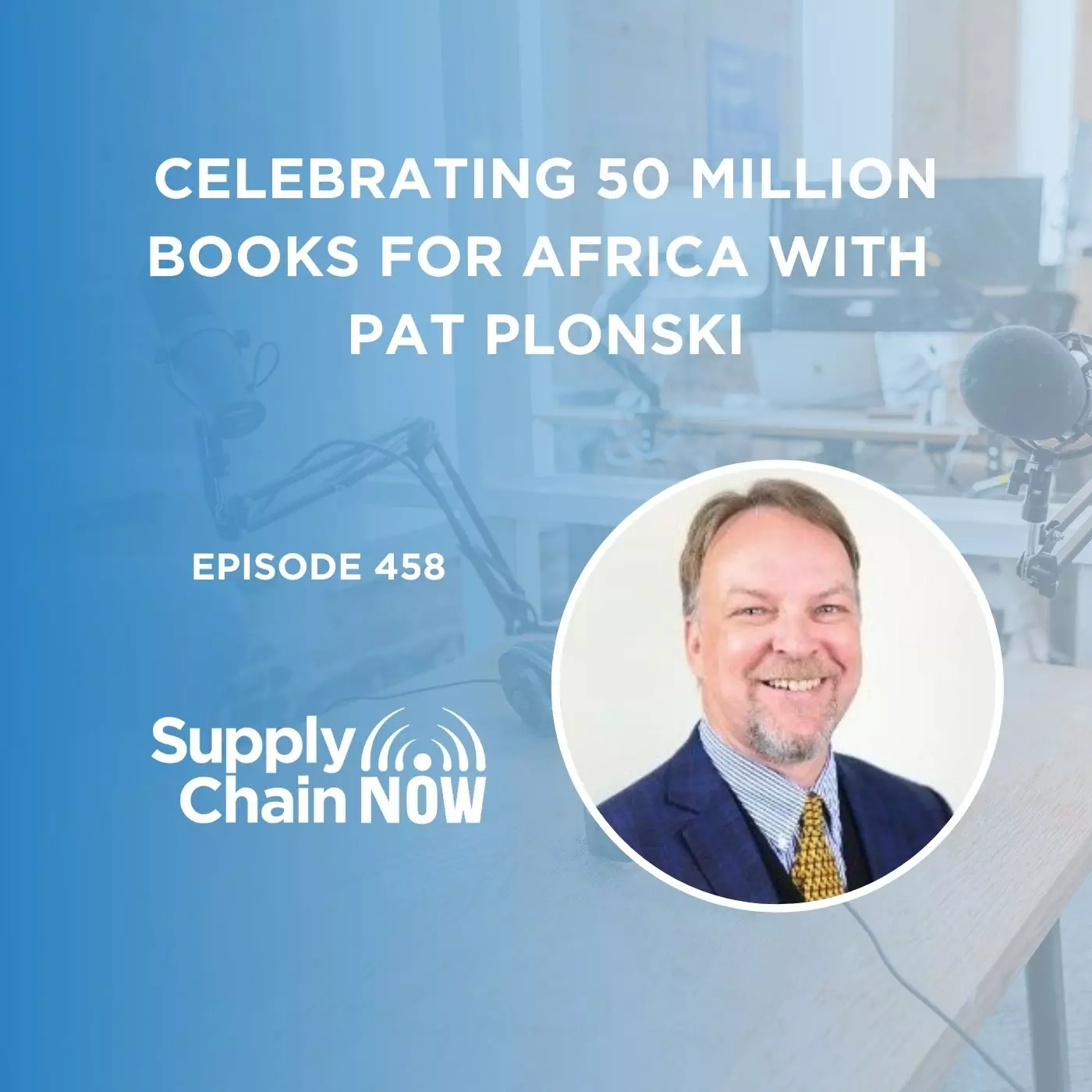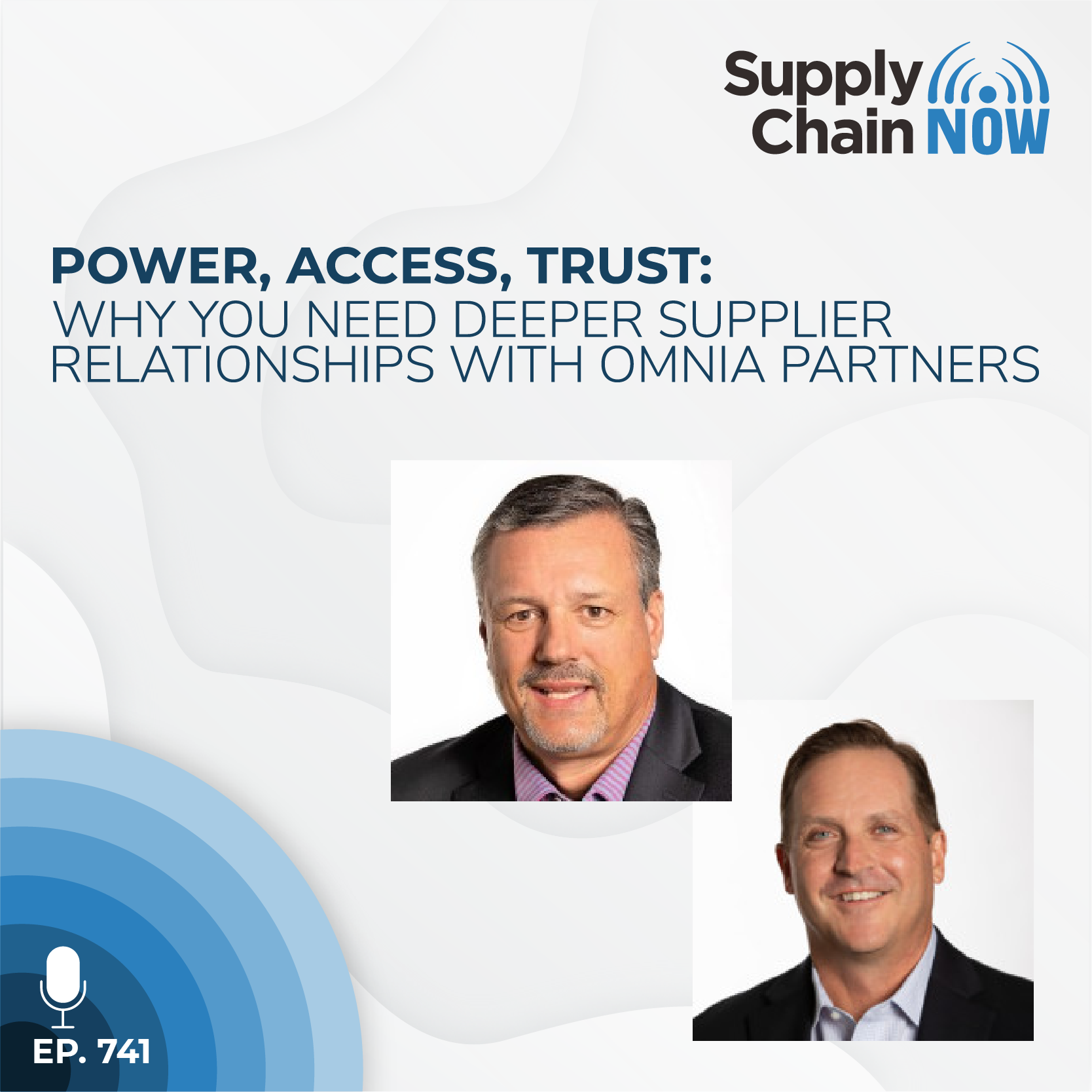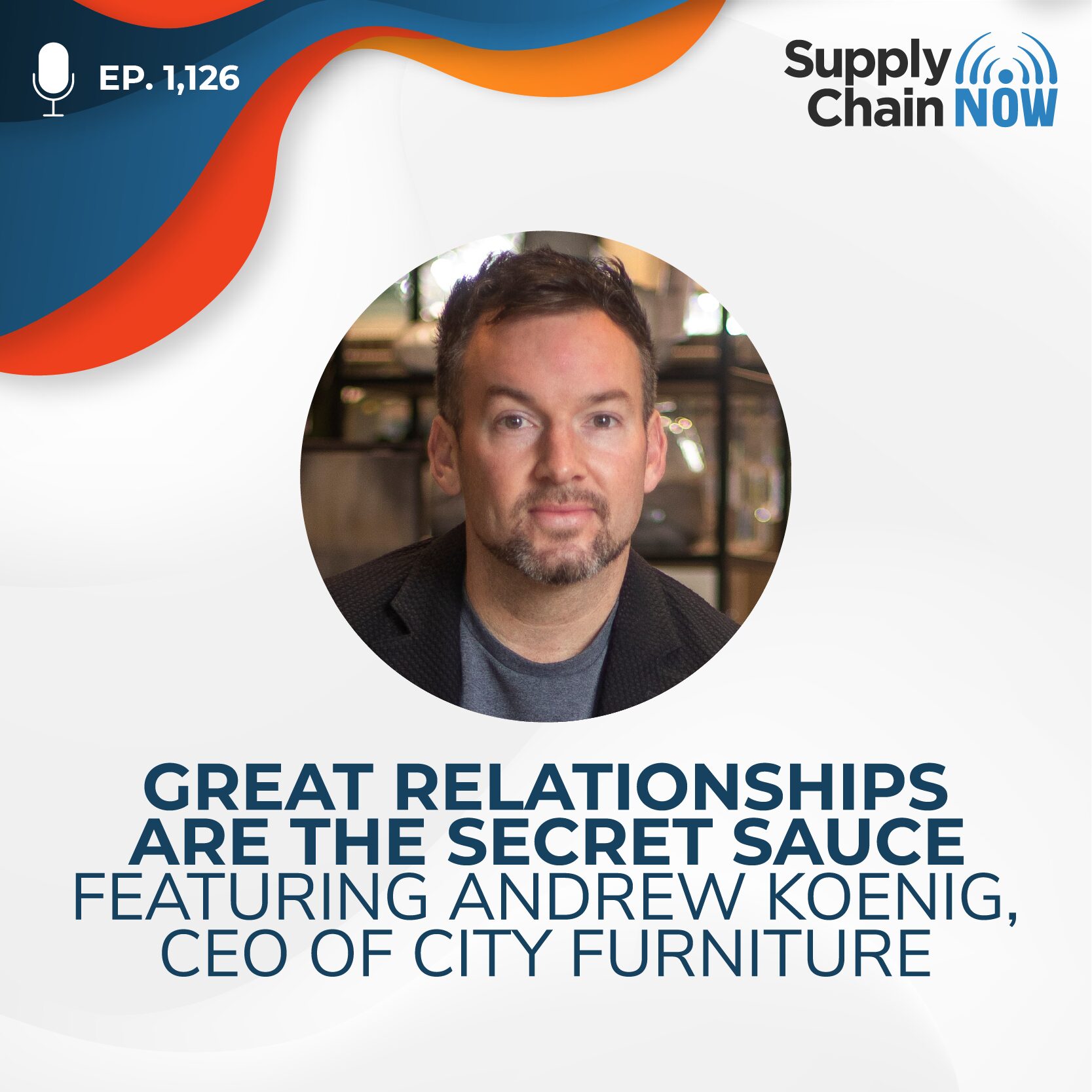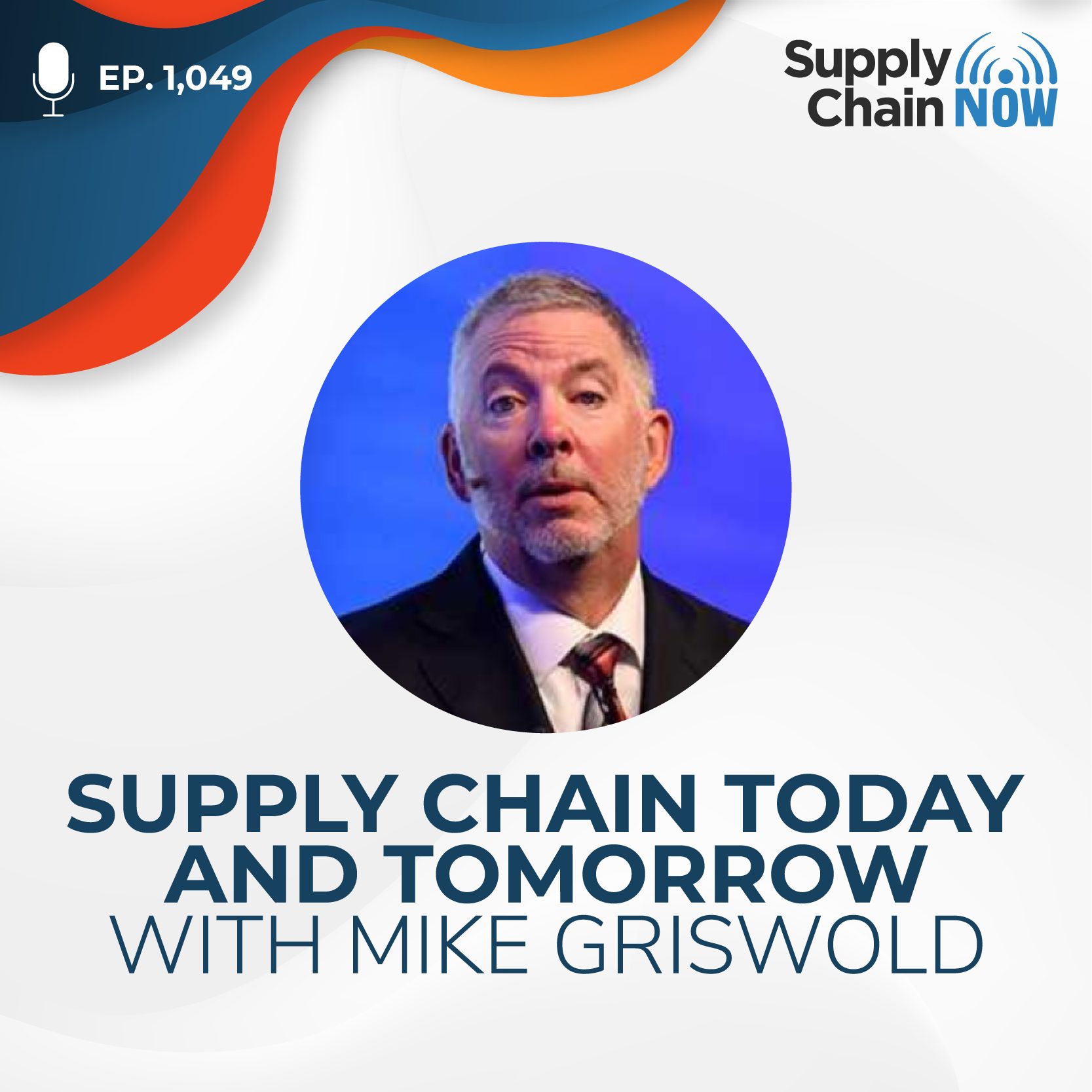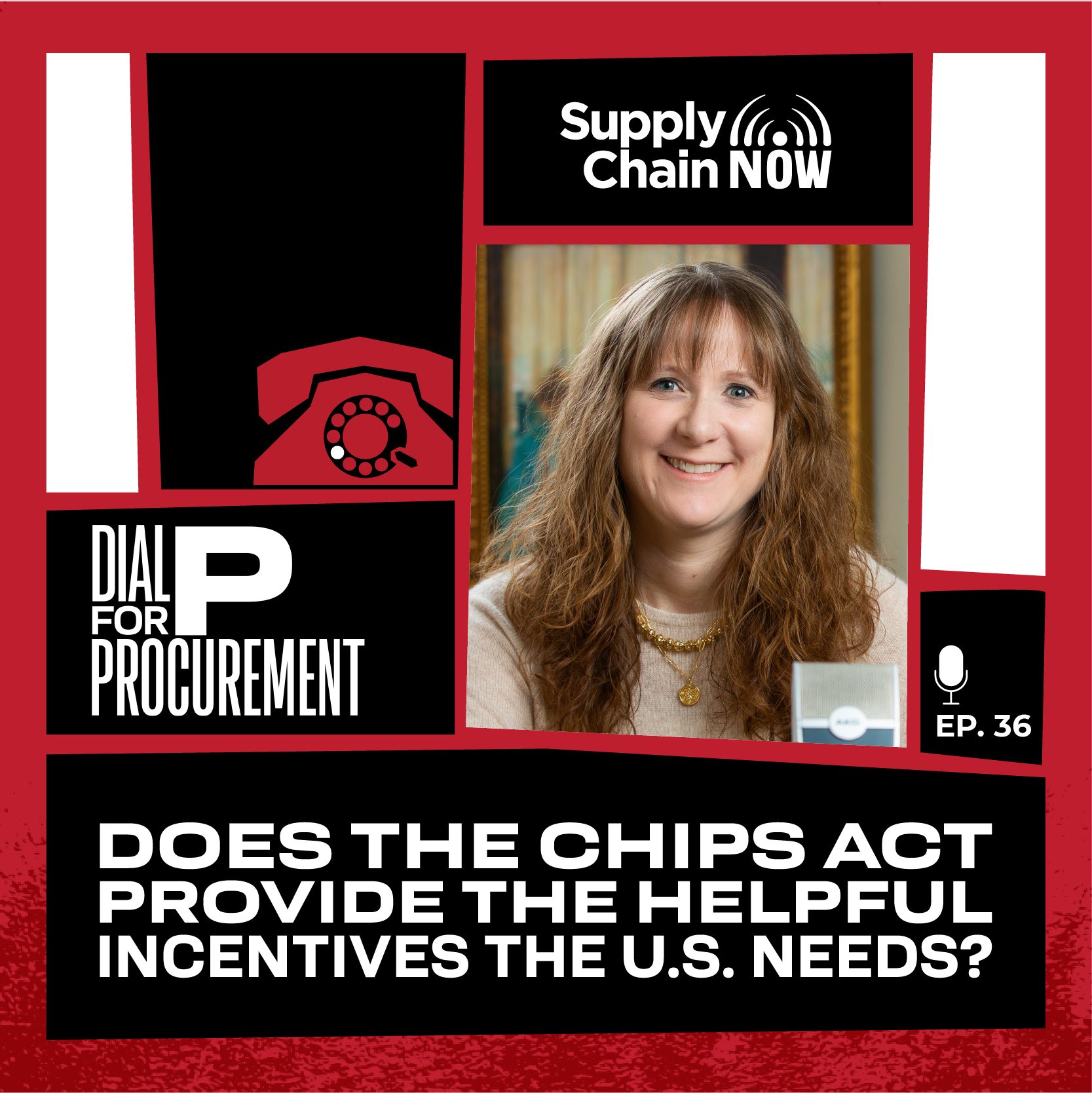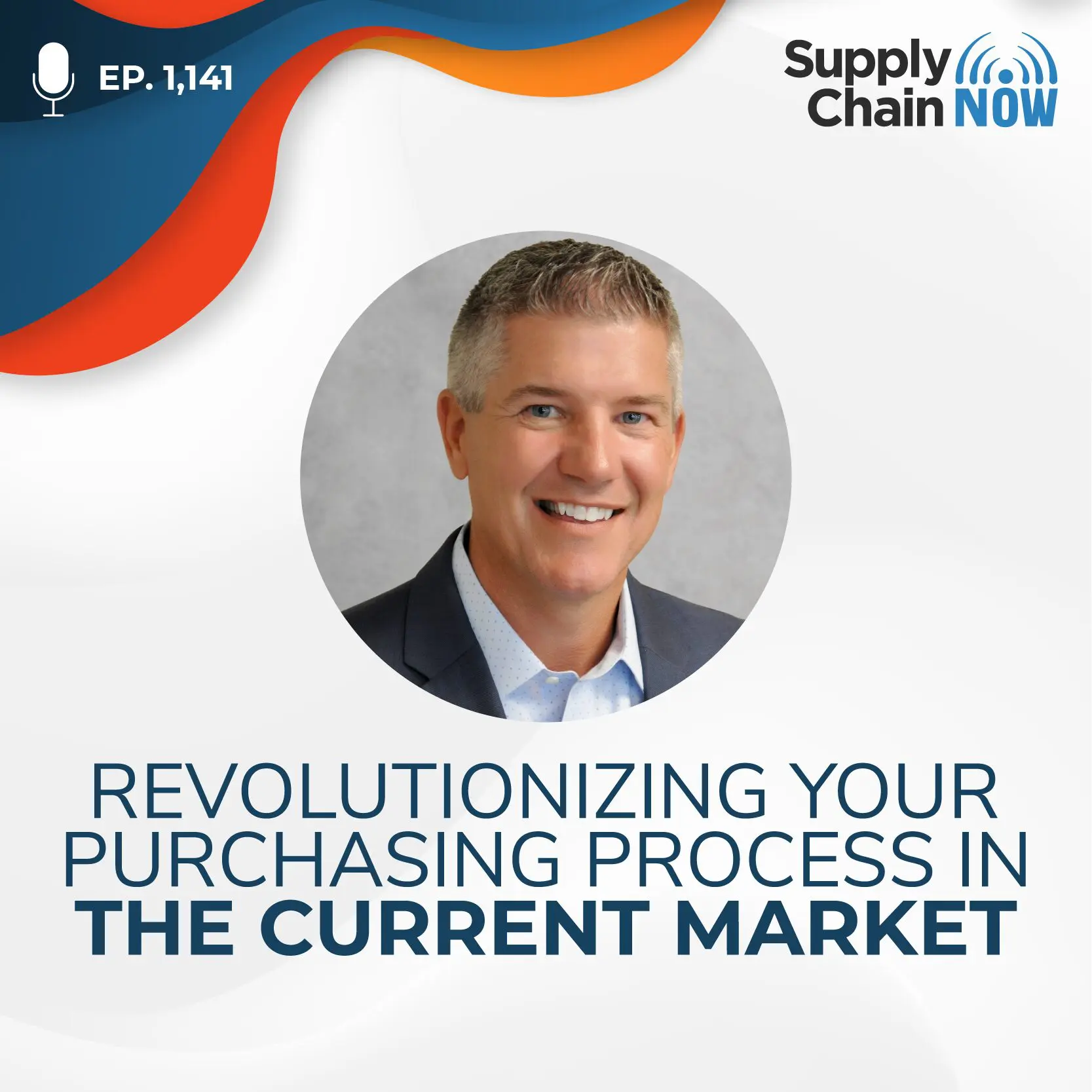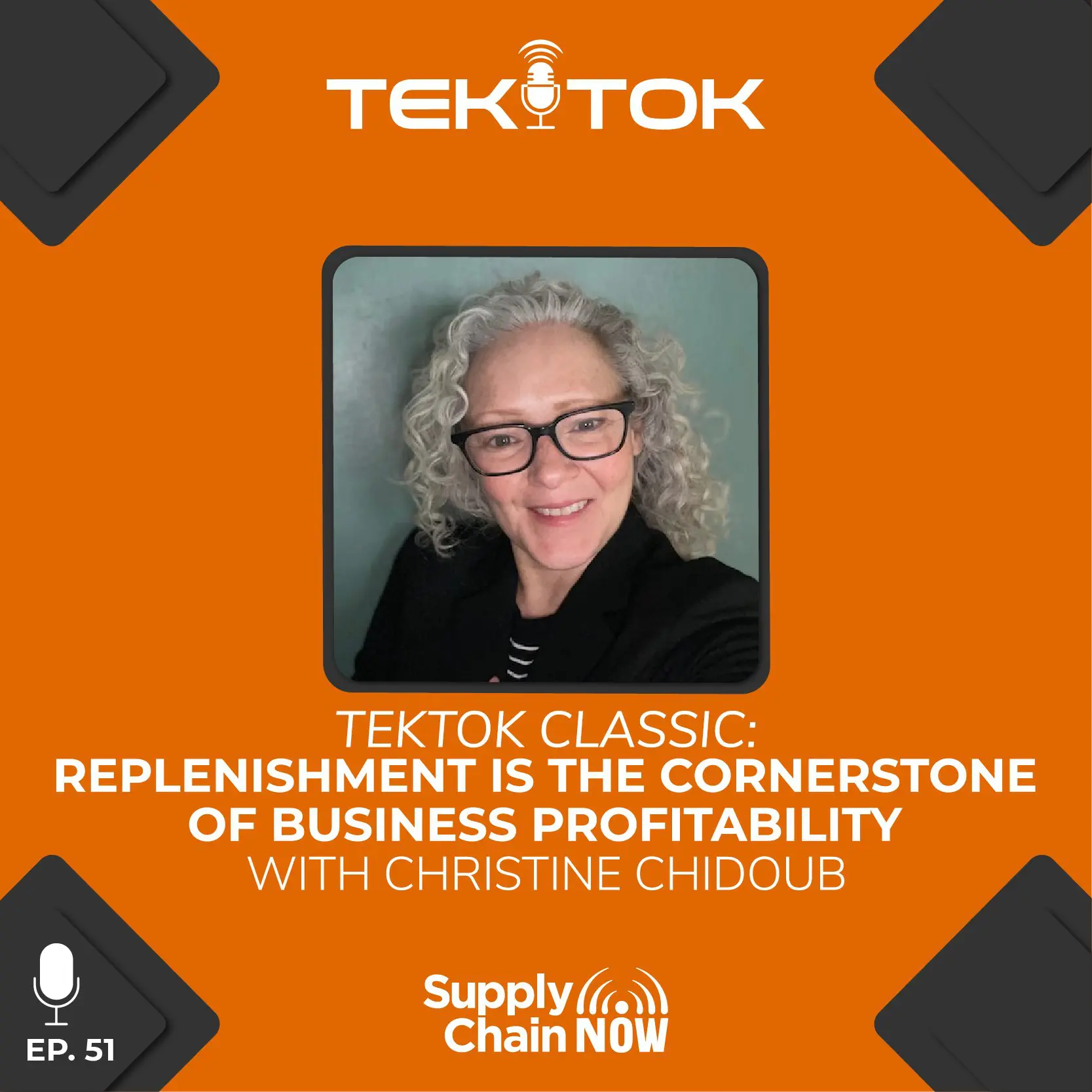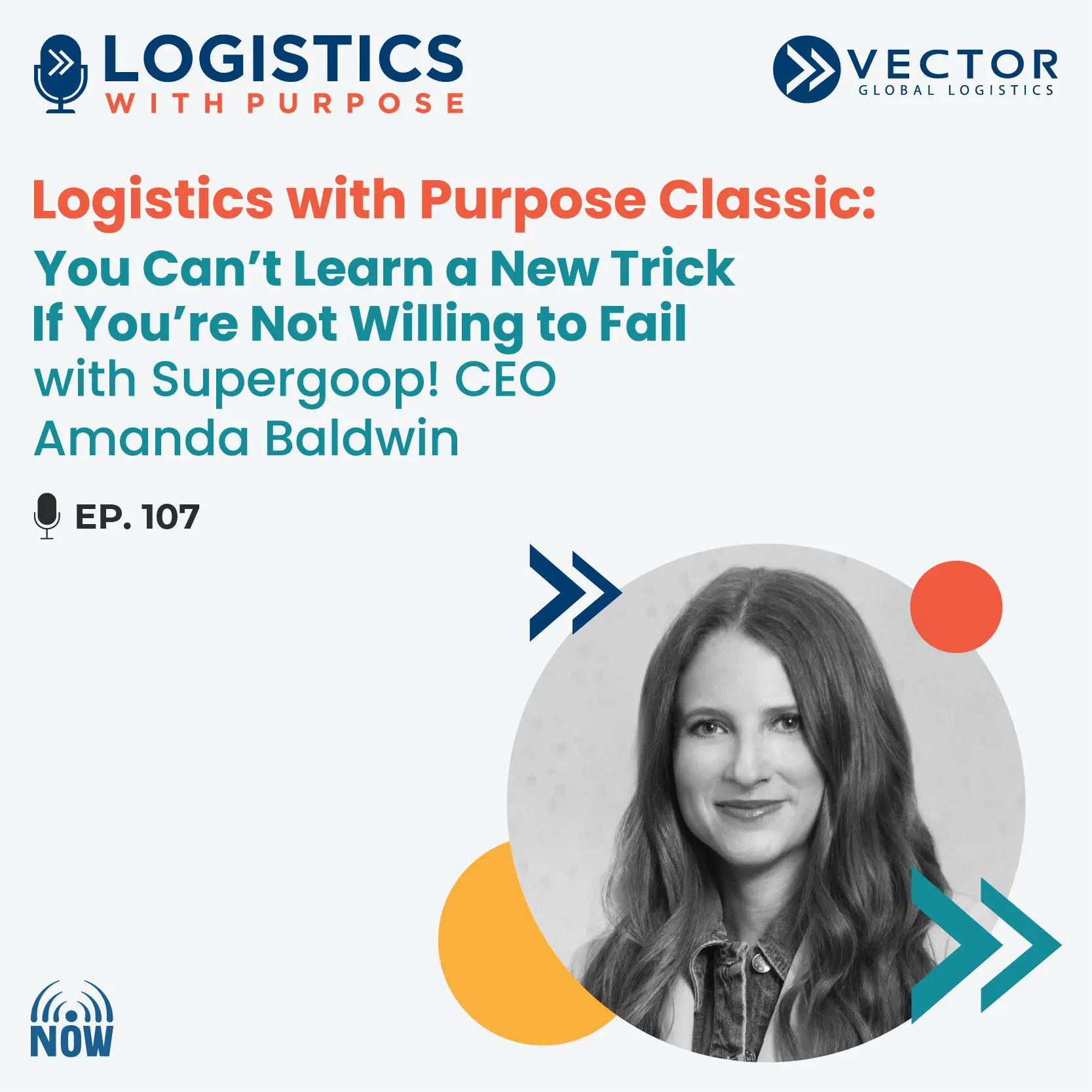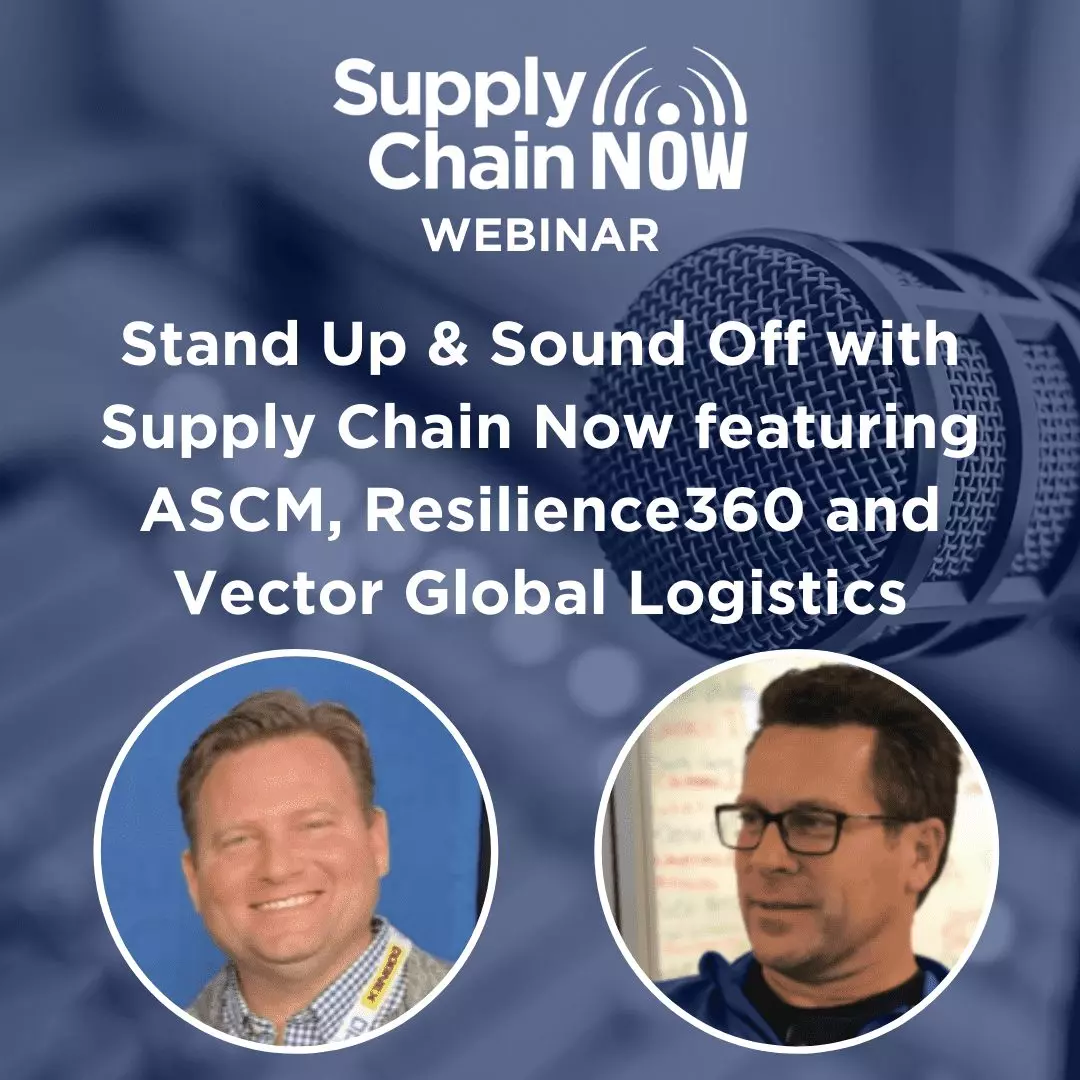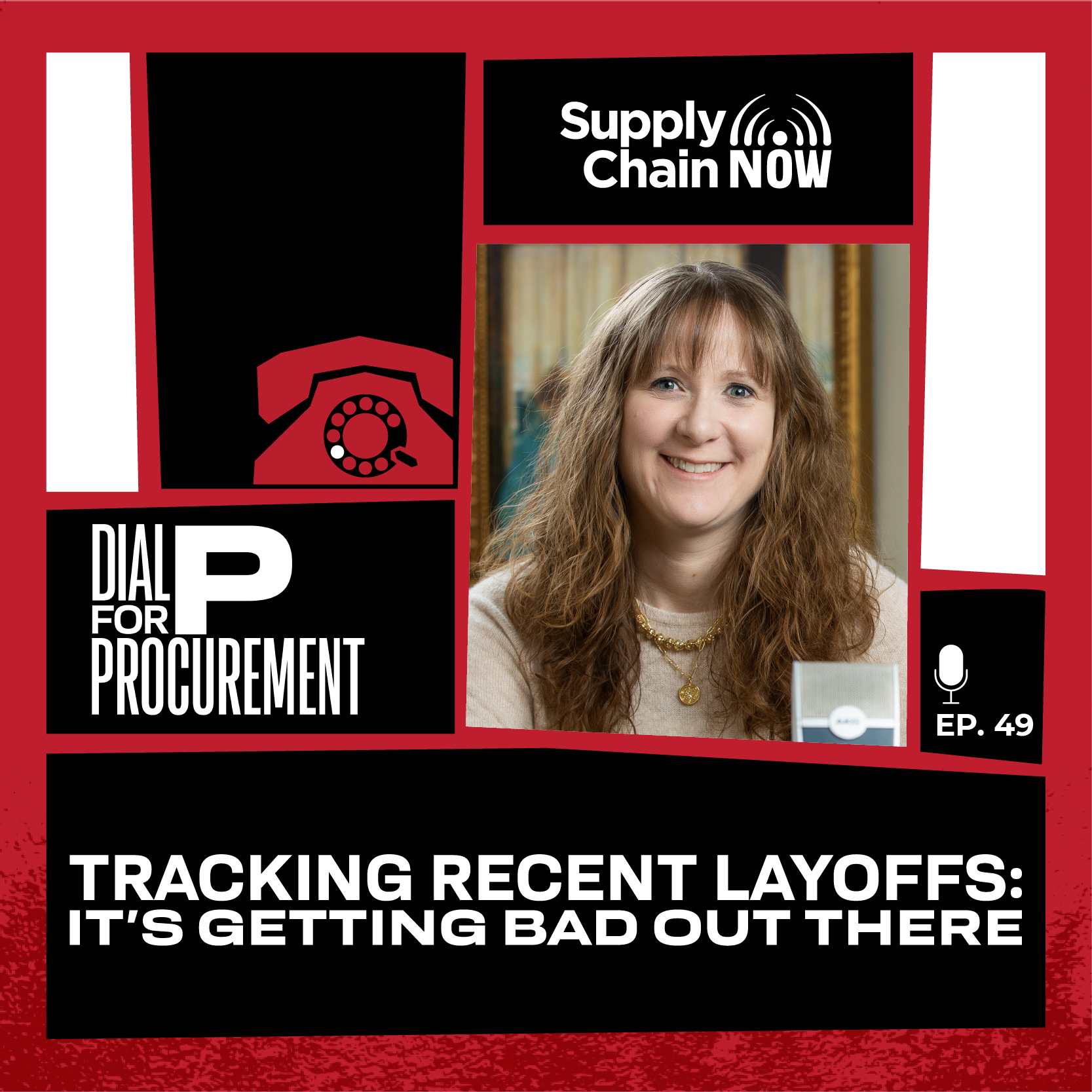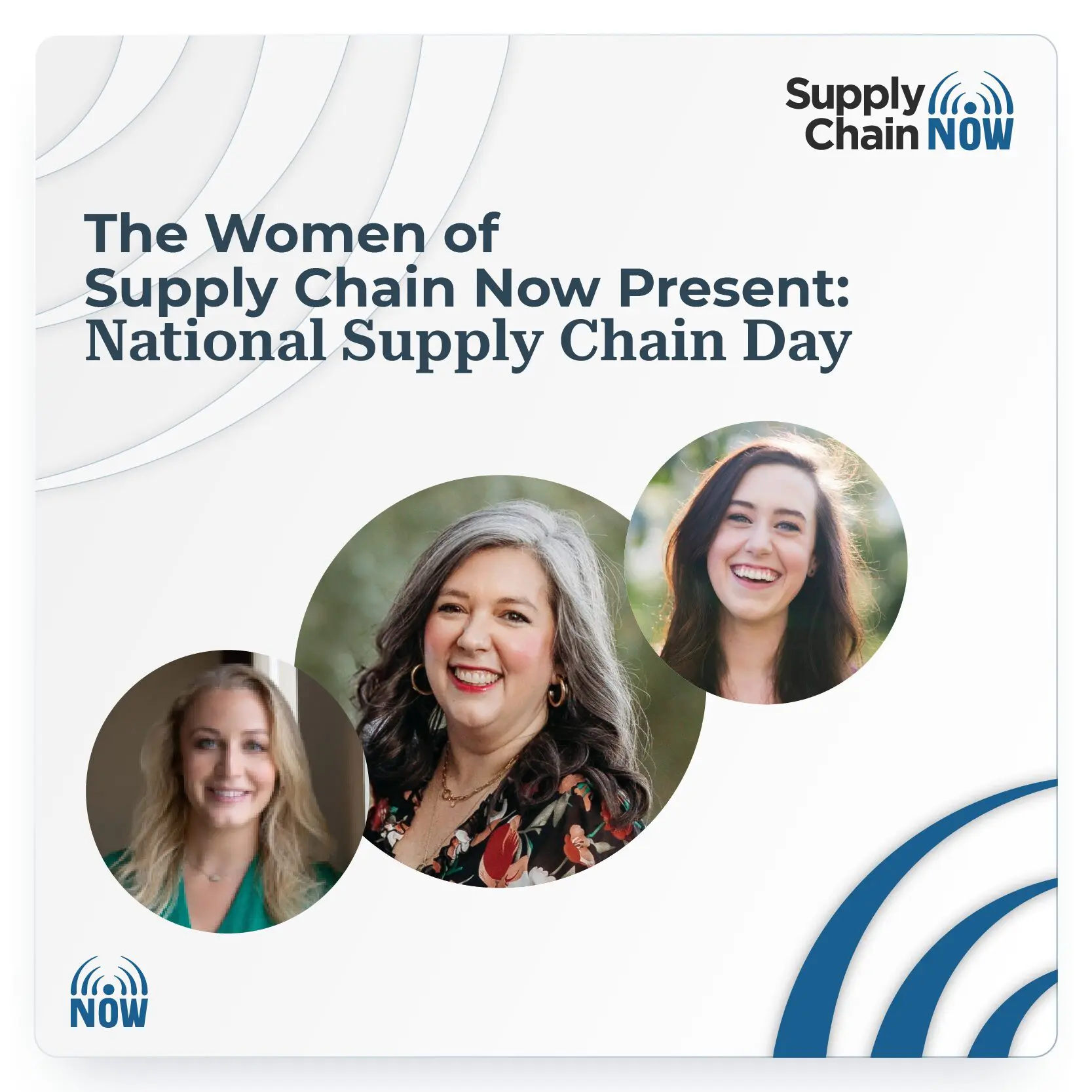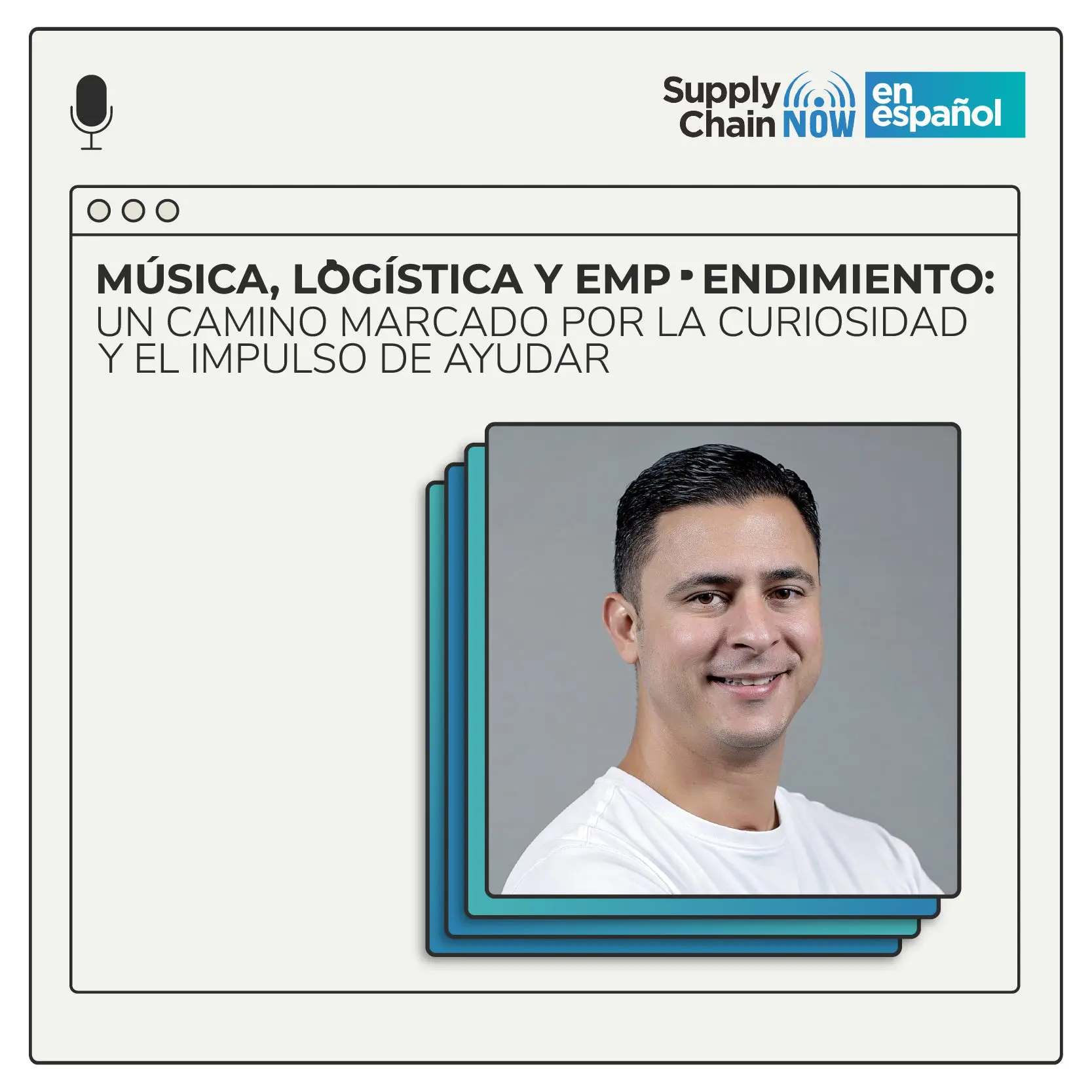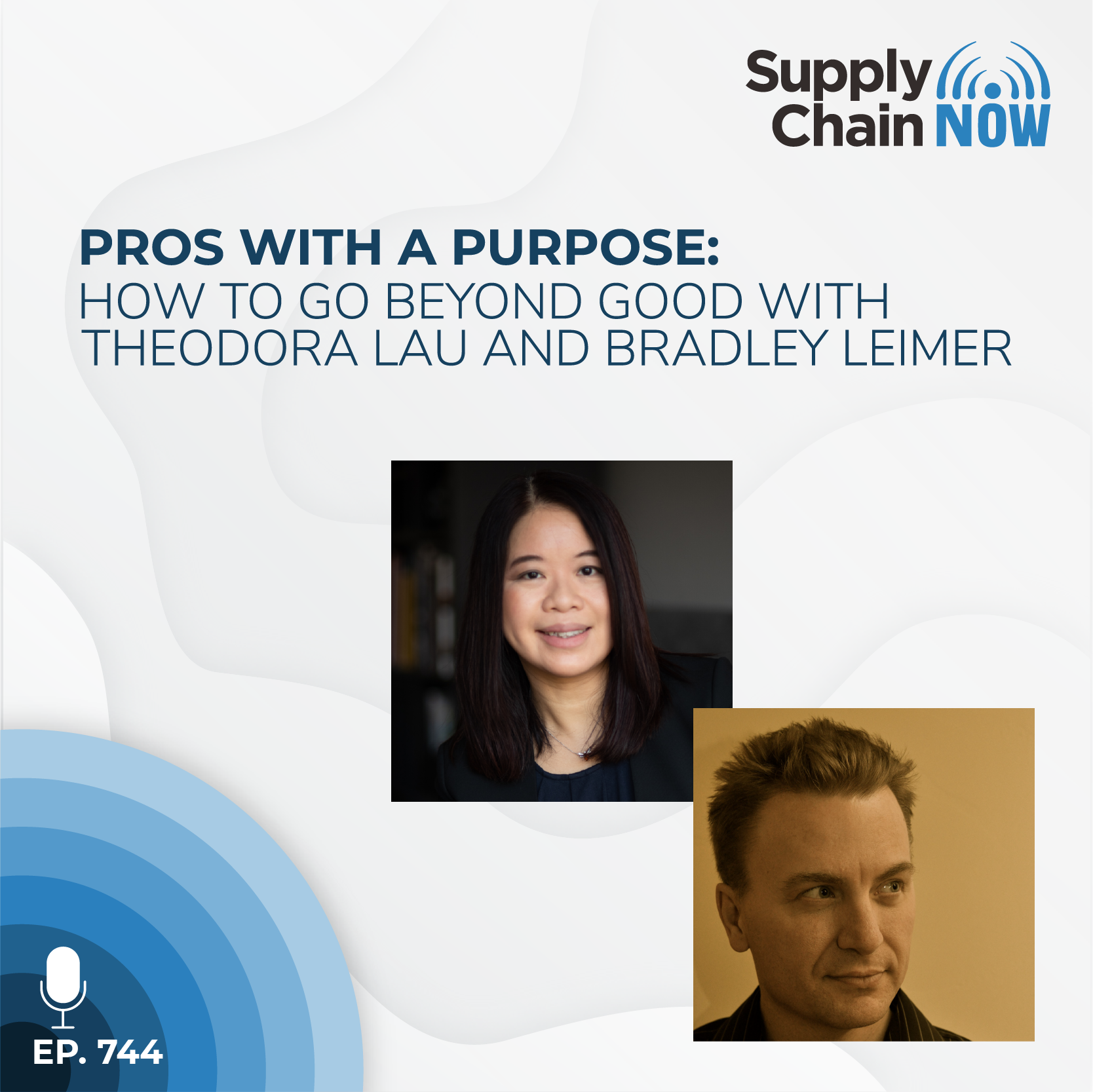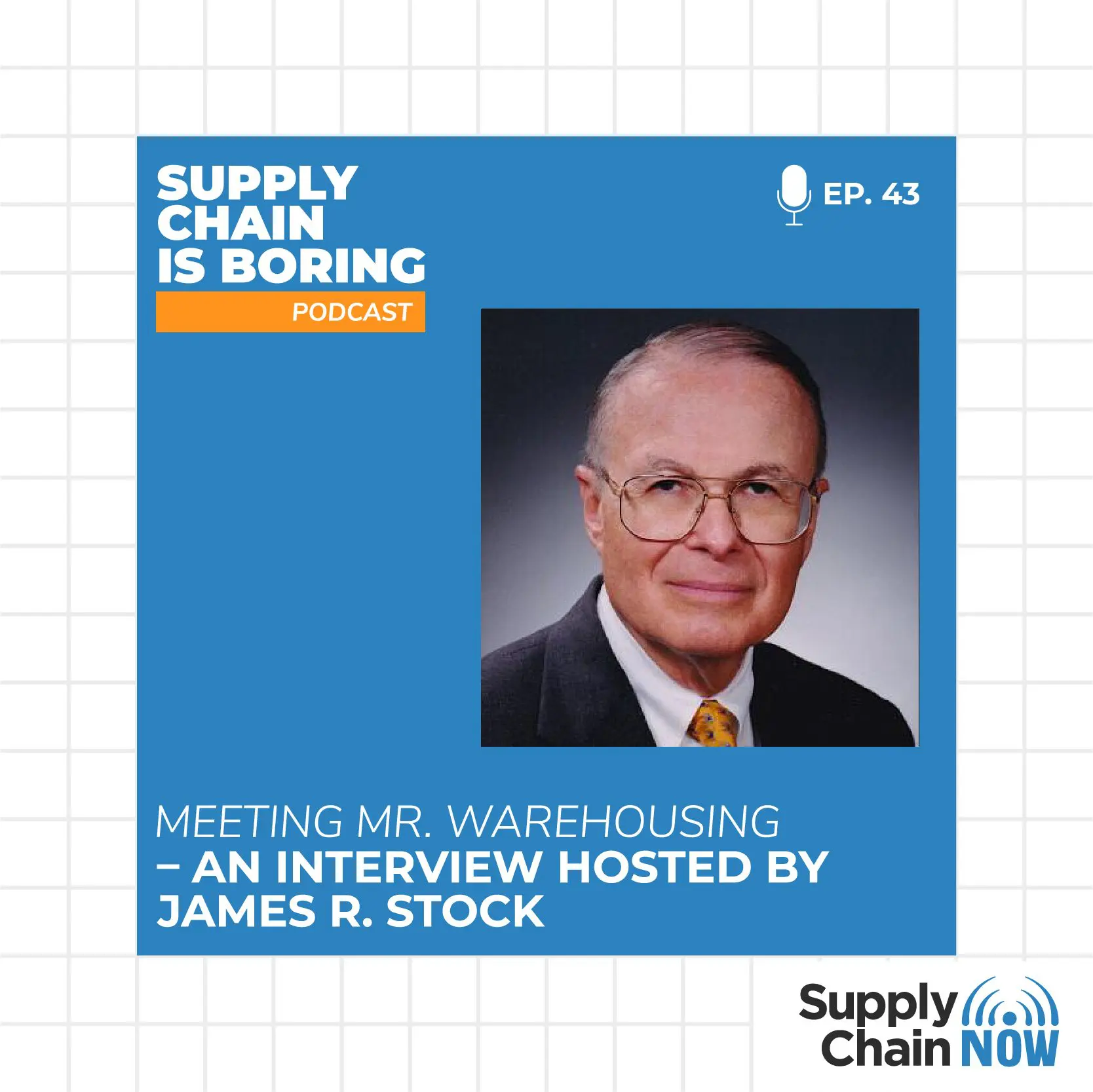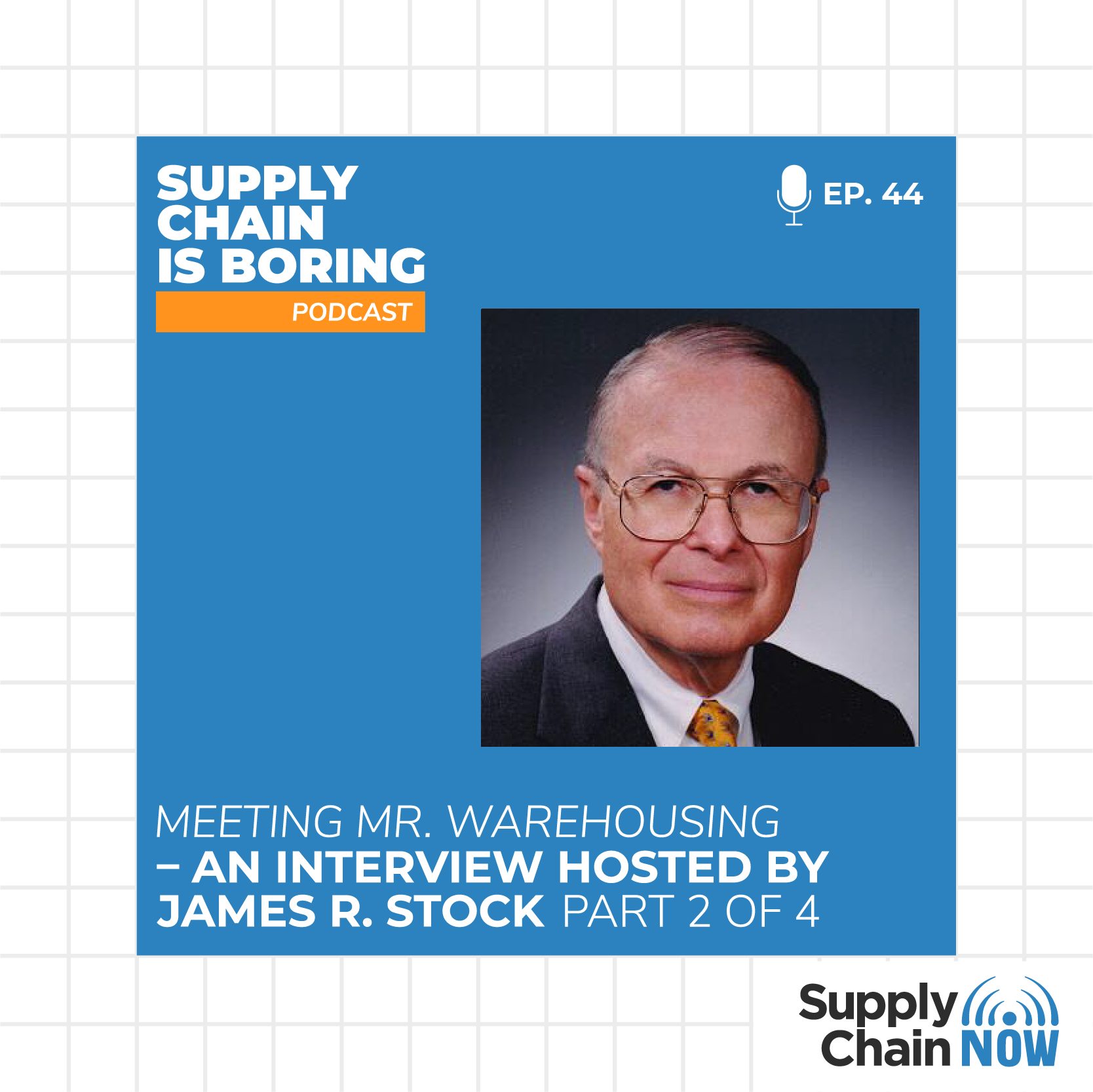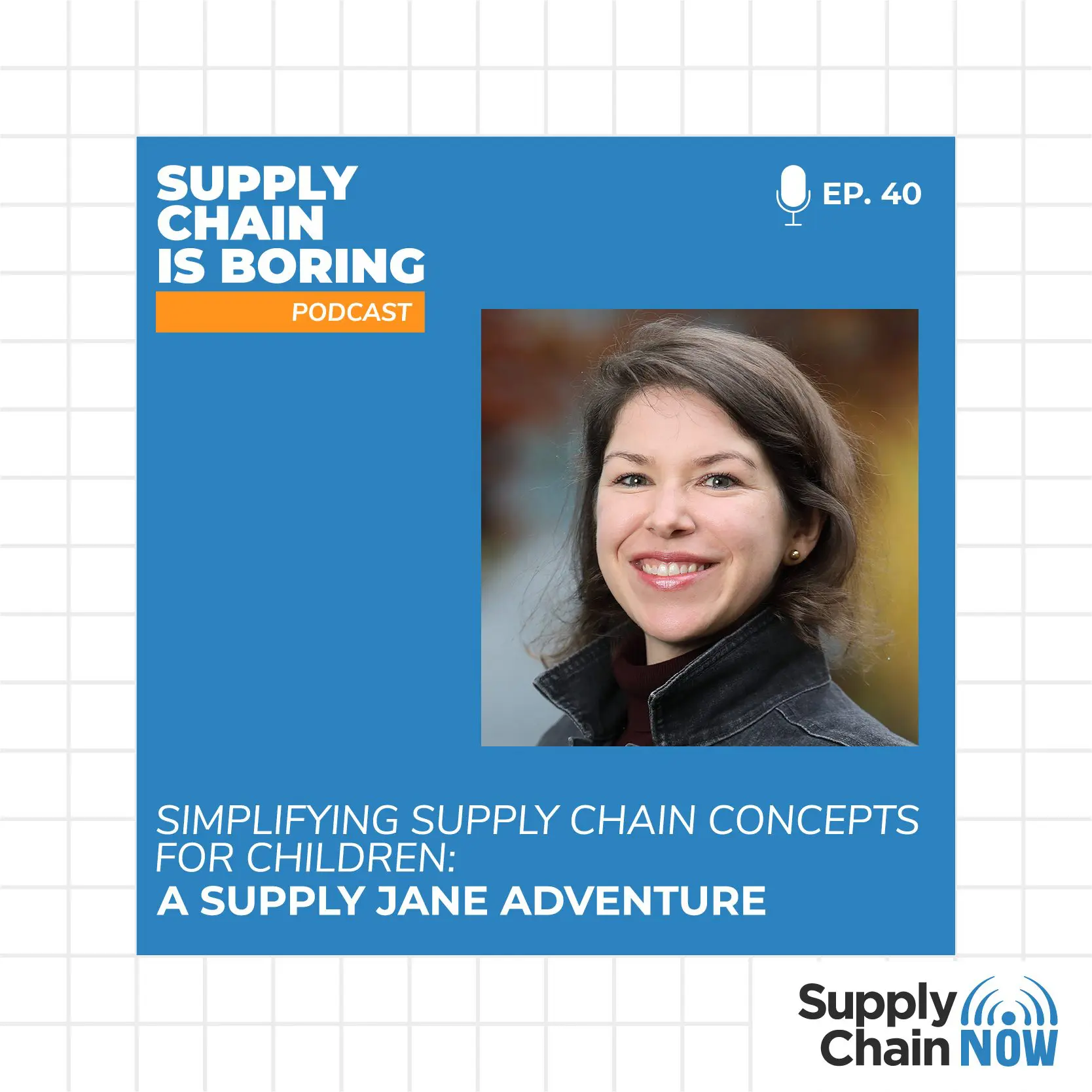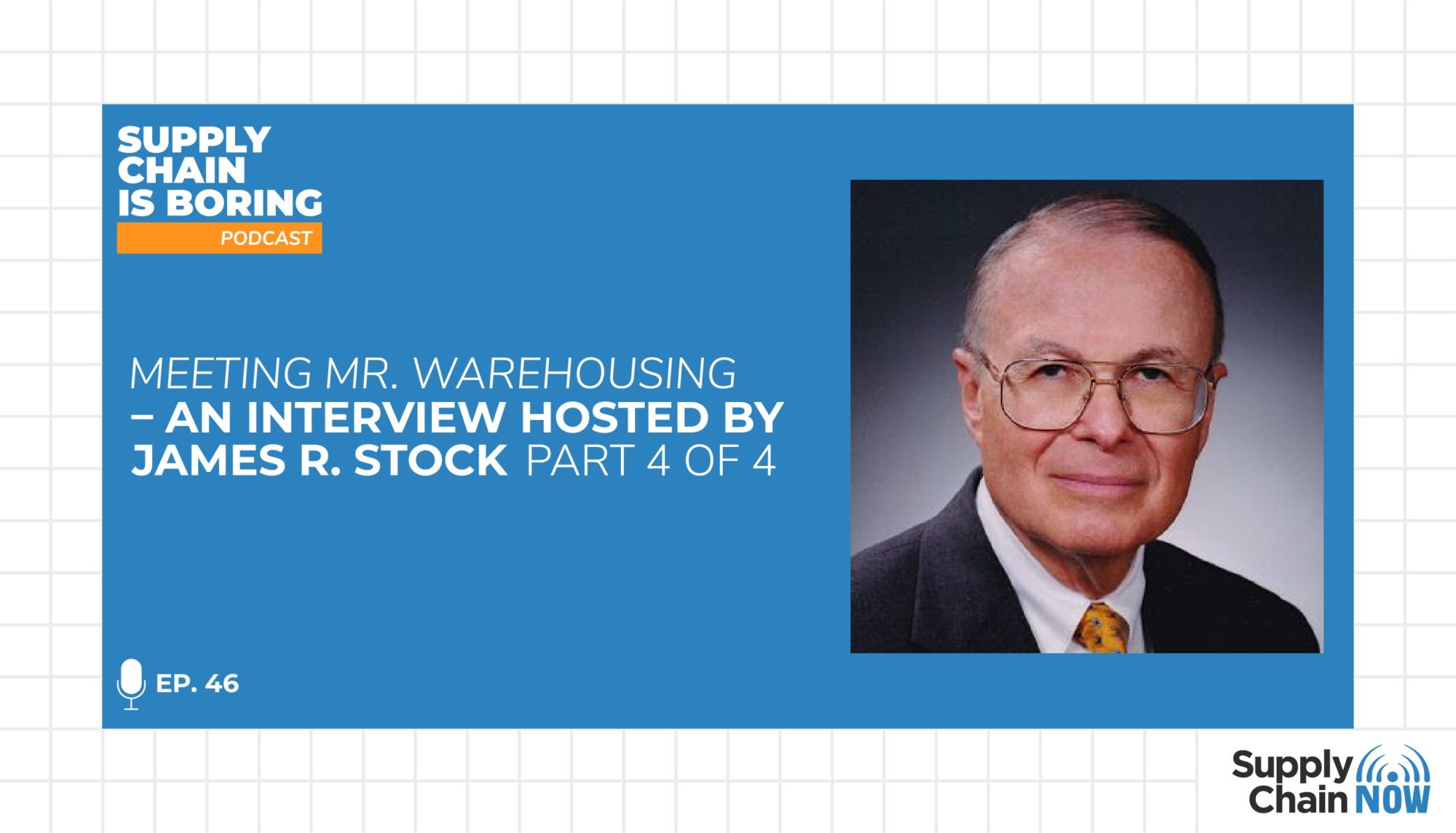
Episode Summary
James R. Stock is a University of South Florida Distinguished University Professor and Frank Harvey Endowed Professor of Marketing. He has interviewed many of the greatest minds in transportation logistics, a practice area we call supply chain management today. He shared those interviewed with Chris Barnes to be republished as part of the Supply Chain is Boring program.
In this interview, Stock speaks with Kenneth B. Ackerman, a well-known warehousing guru and consultant about the result of manufacturing going global, the role of unionization in logistics, and the updates reflected in the latest edition of his book, “Warehousing Profitably: A Manager’s Guide.”
Listen in to learn more about this well-known luminary in supply chain management.
Episode Transcript
Chris Barnes (00:06):
Hey, it’s Chris. The supply chain doctor and host of supply chain is boring. Over the years. I’ve interviewed some of the brightest minds and successful leaders in the world of supply chain management. In May, 2020. I sat down with Ken Ackerman to learn more about him, collect a little supply chain management history. After our discussion. Ken told me about a similar interview he had with Dr. James stock many years prior, and the related work Dr. Stock was doing in November, 2020. I was able to catch up with Dr. James stock to learn about his work as an academic in the field of transportation logistics. And now what we call supply chain manage ment Jim was well connected to many of the original academic thought leaders in the space. Jim did interviews with many of these original thought leaders and shared them with me. The list includes Ken Ackerman, Don Bauer, SOS James Hasket, bud littleand John Langley, Jr. Tom Menser, Tom SP and Daniel Ren To carry on the great work started by Dr. Jim stock. I’m dusting off these interviews and bringing them to you on supply chain is boring
Ken Ackerman (01:13):
In England. Everybody’s taking in everybody else’s wash, and that’s where we could end up if nobody’s making anything in America anymore. We’re is taking in each other’s wash hope to see the day when we have a resurgence of manufacturing in America, which we’ve had in things like it. Uh, and, uh, to the extent that it’s manufacturing, uh, the entertainment business, uh, television film is very strong here. So we, we need to, uh, develop more creativity and to develop union free enterprises, which I think are healthier than those that are unionized. Okay. Now, what would you say are those excellent or of good changes have taken place? Good changes today?
Ken Ackerman (02:11):
Well, we, uh, we have gone global and I think that’s good, very hard to go to war with people you’re doing business with. And I think the it’s a success in the logistics industry of FedEx and ups of becoming true global service providers is wonderful. Uh, I think the example that Fred Smith said as an entrepreneur is inspirational, uh, even though he see on that report. Yes. I love to tell that story in, in workshops about the Yale professor who said that, uh, he was never, yeah, it would never work. The banker said the same thing. Uh, but, uh, I think globalization has been a very healthy thing. And my hope is that, uh, my, that our country doesn’t lose its edge that it has. I’m not at all worried about free trade because we are the winners on free trade. Ultimately, a few people will lose their jobs, but a lot more will get jobs because of globalization.
James Stock (03:26):
Now related to that with your background in, uh, Latin American and your fluency in Spanish and, and, uh, visiting there a lot, um, not a question I prepared, but one, uh, it brings to mind, what is your perception of NAFTA in terms of its impact?
Ken Ackerman (03:45):
Best thing that could possibly happen. And one of the wonderful things that I travel to Mexico a lot is the relative prosperity in Mexico to how it was 50 years ago, you will see more pan handlers in Columbus than you will in Monterey. Uh, I was vacationing in, uh, the island of Coel off of the Yucatan peninsula. And I asked a, uh, house cleaning lady was cleaning up. Our condominium said, well, tell me, is there a lot of unemployment here? And she just shot right back and said, only the drunks said everybody that that can work has a job. And the ones that can’t, that don’t have a job aren’t employable, but she came right back, you know, in quick answer. And, and, uh, I’ve been in Coel since you don’t see any poverty there, you never see any pan handlers or beggars. Uh, there must be a slum somewhere on that island, but I’ve never found it now.
Ken Ackerman (04:57):
Tourism did that, but the tourism, uh, has somewhat been promoted, I think by NAFTA and the relative prosperity of Mexico compared to what it was. And of course, if, if I could be king for a day, I would put a big tariff on imported oil and do it as quickly as possible. And then allow of course, through NAFTA, Canadian and Mexican petroleum to come in under the tariff and, and let us buy all of our oil in north America and, and send that our money to our, to our neighbors instead of to the middle east. I think that the world would be a lot better off and the day that the Mexicans don’t have to come up here to get a job will be a happy day for everybody. And that could happen
James Stock (05:53):
Now related to that, one of the issues that’s been, I guess, on the front burgers for at least, uh, a couple of years now have been Mexican trucks on us highways
Ken Ackerman (06:03):
Outrageous. This of course, is the Teamsters union. See, they don’t care about the Canadian trucks because those are guys are Teamsters. So that’s nobody, nobody in the press wants talk about that. But that’s, that’s where the issue is. The Teamsters want the Mexican non-union truckers out. And, and I think it’s a huge embarrassment to the United States that we’ve allowed this to happen. It’s outrageous. If I were a Mexican, I would be furious. I’m not a Mexican, I’m still furious. Yes. It’s unfair. And, and unwarranted.
James Stock (06:40):
Well, most of the discussion seems to be on safety issues.
Ken Ackerman (06:43):
Yes. But that’s a straw, man. I mean, you, you go read about and look at Mexican trucks and it’s just, uh, I think it, I think it’s an excuse.
James Stock (06:56):
Okay. So Ken, let’s ask some specific questions. Uh, what we’ve been asking thus far with very few exceptions have been, uh, questions we’ve asked all those we’ve interviewed. We, uh, wait until the end starts some specific questions specifically related to your career and interests and accomplishments. And the first one is, um, and we, you briefly mentioned that, uh, the organizations that you’ve been involved with primarily, uh, the first one in CPM, national council, physical distribution management, now CS, C and P, um, when you were first involved with that organization years and years ago, uh, did you have any vision that would be the type of organization it is now?
Ken Ackerman (07:44):
I think I did, uh, in my inaugural address is not the it’s a too, too fancy word, but the talk that I prepared at the, uh, annual meeting when I would named as president, I said, I expect to see the day when we take the first letter national out. And I persuaded, uh, our executive committee to have a meeting in Toronto with the Canadians. And I was ahead of its time. I got some pushback. Uh, one of our guys said, Ken, he said, my responsibilities are strictly within the us, my management won’t, won’t support my running around the world. We’re not ready for that. So I backed away. It was one of those cases where you’re leading and you discovered nobody’s following. So I backed away, but I certainly celebrated when the name change came and the end was dropped and that had a whole lot to do with the growth. It was no longer the national council. It just took the end out. And, uh,
James Stock (08:53):
That was in 1985 council logistics management.
Ken Ackerman (08:57):
That’s correct. Uh, in 2002, I was agitating may not have been the first, but was early in saying logistics is the old term. The new term is supply chain. And if you went to a cocktail party and you met a dentist or a psychiatrist and said, I’m a logistics manager, you probably have to keep talking because he’d say, well, what’s that, but everybody knows what a chain is. And everybody knows what supply means. And it’s said, you know, it really isn’t that it’s a great deal of difference. It’s, uh, I’m a wordsmith and supply chain is better understood than logistics or physical distribution. People think they know what it means. And that’s important.
James Stock (09:51):
And let me ask you a, uh, a question for your personal input ups now has, uh, their new commercial. Yeah. Relatively new. Yeah. Which is using the logistic song. I know. And they didn’t, uh, use a supply chain. So
Ken Ackerman (10:08):
Yes.
James Stock (10:09):
What do you think about that?
Ken Ackerman (10:10):
Well, it’s better than their, their old idea of, of trap to sell a color brown, which I thought was idiotic. Uh, uh, I, I don’t care which term they use. They’re doing a great service to all of us in the field to create awareness of the business we are in. So I’m love it. It’s probably some songwriters that I can do more with logistics than I can in supply chain. You never know what Madison avenue will do, but, uh, ups is a company that has great management. Uh, I might add great vertical mobility, uh, vice presidents who started as freight handlers and lots of money to tell their story. So I wish them well, and I don’t care what term they use. If they get the public acquainted with it, it’s a win for all of us.
James Stock (11:13):
Okay. Now we also mentioned in, uh, summarizing your background, another organization, which was formed after NCP M, that was work w housing education, research council. You were one of the founding members.
Ken Ackerman (11:28):
That’s true. Um,
James Stock (11:29):
How’d you get involved obviously being in warehousing?
Ken Ackerman (11:32):
Well, that’s a strange thing and I never went through the chairs of work. Never really wanted to. And I saw a lot of people who wanted to more than I did. Uh, but it was a strange thing. I had at least two people pestering me on the telephone saying, uh, I’d like to go, it was still called American warehouse association. Then it’s, what’s now called I w L a the trade association for public warehouses. He said, well, I’d like to go to that convention. And I’ve called Chicago. And they said, well, you’re welcome to come down and play golf or sit by the swimming pool, but we won’t let you into our sessions because those are secret. And, and these two guys were needling me about this. And I said, that’s just the silliest thing I ever heard of in my life. I said, there isn’t anything that should be secret or is worth being secret.
Ken Ackerman (12:27):
So, uh, I had a serious of visits with two academics at this institution. One’s no longer with us, Jim Robeson and the other are friend bud LAN. And we shooting the breeze over breakfast said, why couldn’t we just have an association that welcomes everybody in warehousing, not just the public house crowd, but everybody, and kind of model it after NCPD M and then I called my friend George JIT, who said, that’s a great idea. I’ll support that. I think it’s wonderful. Uh, then I ran into another guy who’s no longer with us. One of the founders, bur H who was at the founding of NCCP DM and in his inevitable style, he said, Ken, it’s never going happen with a bunch of guys. Yaking about it over breakfast. It’s only going to happen when one guy gets on the telephone and, and gets a one or two dozen of his best friends to, and sit down and talk about it.
Ken Ackerman (13:36):
He said, I think you’re, the guy has to do that. And I saluted and said, yes, sir. And did it. But Burr was sort of the gray eminence behind who was telling me how to do it. And, uh, we got 12 or 15 people to the airport holiday in, in Columbus, you know, come in at 10 and we’ll be done at two sort of thing, fly in and out same day. And the rest is history. It stuck. But one of the things we did in that initial meeting deliberately is we invited a board member from NCP, D M uh, that was Bob Delaney. And we invited a board member from the warehouse association. And that was a fellow, the name of rod Lama from Kansas city.
Ken Ackerman (14:30):
And we said, go back to your group and tell them that they could change things so that we never had another meeting. If CPDM would have a warehousing division and have part of its conference devoted to warehousing, then we don’t need this. And then go back to the warehouse association and say, if you would open up your sessions to, uh, shippers, to private warehouse operators to customers, then we don’t need this. So you two guys have the ability to make sure that we never meet again. We were pretty sure what would happen, but we thought it in this, I think was Burr’s idea that we’re not plotting a revolution. We’re inviting everybody into the town and saying, here’s what we wanna do. If you wanna stop us, please stop us. And, and, uh, uh, I was very sure what would happen with NCP DM B because George jits was saying there is room in the world for a warehouse organization. We shouldn’t be it. It’s a good thing to do. Uh let’s let’s uh, assume that it’s a great idea. Not everybody on his board agreed with that. Fortunately, most of ’em did. Hmm.
James Stock (15:53):
Now it’s interesting. You mentioned at least from my perspective, uh, one of two people that probably had the most significant impact in warehousing yourself and bur H yes, but the only difference is you don’t wear the loud jackets to spur
Ken Ackerman (16:06):
Up wore, um, loud shirts, but not jackets,
James Stock (16:10):
But, uh, um, What was your opinion of, uh, of beh?
Ken Ackerman (16:16):
I stood in awe of beh. He was a fantastic leader. He was a great communicator. Uh, somebody, academic friend of mine said he would’ve made a great Roman general. He’s said he looked like a Roman general. It was very, very persuasive. And, and you just sort of wanted to salute and say, yes, sir, whatever he said, anything, the, my first and only job for work was to, to chair its first general conference, because I had chaired conference for NCCP DM, which we had here on this campus, in the faucet center at Ohio state had no idea who’d come, whether anybody’d come there was, there was no history. You know, we were building with no history in the evening before the conference. Uh, I think a few people got together for dinner and Burr started after me. He said, you mean, you didn’t do this and you didn’t do that. And, and this third thing you neglected to do, he said, what were you doing anyway? But that was Burr. You know, he, he, he was a, a domineering in the best sense, a dominant personality. I, I had a huge regard for him.
James Stock (17:43):
Like you, he was involved in the profession for many years.
Ken Ackerman (17:46):
Yes, indeed. Many years.
James Stock (17:48):
Now you mentioned, uh, in general background that, uh, the one gentleman who, uh, influenced you significantly to write about what you did. Yes.
Ken Ackerman (17:59):
Um,
James Stock (17:59):
How did that go from articles for trade journals and magazines to books?
Ken Ackerman (18:07):
Well, I think I have to give Princeton some credit for that, that I had to turn in a 40,000 word thesis when I was a college senior. And I found out that, you know, you take bites, take, go after the elephant one bite at a time, you don’t write a book, you write a bunch of chapters. And so I will, wasn’t intimidating by the idea of producing a book. It never worried me as something that was too big or too hard because I had done it in a tender age. And I knew that it was doable,
James Stock (18:43):
But typically people don’t write multiple books. You’ve written multiple books,
Ken Ackerman (18:48):
Or you could say, I wrote this same one over and over again with different titles. Uh, I think that each one gets to, to some extent easier than the last, because you have experience. And to some extent, my writing today is to some extent, anthologies in that when I produce us a book, uh, we go back in through all 25 years of newsletters and say, well, you know, we could take this article would fit really nicely into chapter 12. And you start out of course, with the outline, that’s the hardest part, deciding what you’re gonna cover and how many buckets you’re gonna have. Uh, but, uh, when you have a lot of writing in the bank, I think you can recycle some of it. Uh, you have to be careful how you do that. So it doesn’t look recycled, but it isn’t all reinventing the wheel wheel at all.
James Stock (19:46):
So other than revisions, what’s the next, uh, Ken Ackerman book?
Ken Ackerman (19:50):
Well, our, our, uh, third edition of warehousing profitably is almost done, I think, will be available, uh, around the first of the year. And, uh, it’s a major revision because the, the, uh, last one is very badly out of date. So we have a whole lot new stuff. And the things that aren’t done are the real fun jobs, like getting the index made and that sort of thing get and getting, and, and I use self-publishing, so I’ll have to go have the type set and, uh, you know, make, get a printing contract and so forth. Uh, the book is basically done and, uh, I continue of course, to turn out my monthly newsletter every month. And, uh, the other books that we have that are fairly new will probably go to revision. I’m not thinking of any, not yet planning any sexy historical novels or anything like that. Any other writing I, I do was probably gonna be similar to the last.
James Stock (20:59):
So you have no thoughts of writing another precipice book
Ken Ackerman (21:03):
That no, I was on that committee. That was a lot of fun. And, and I will add sheepishly that I was a promoter of what turned out to be a really bum decision for the council to be self-published with a business novel. That was a bad decision. I wish I’d never suggested it.
James Stock (21:23):
It was an interesting book
Ken Ackerman (21:24):
Though. It was, but it was a commercial failure because we didn’t have a publisher. We, and, and we didn’t know how to market a novel. So, uh, but I was sort of agitating because my experience with self-publishing had been very good. I said, we don’t need a publisher. If, if we get every third person in the council to buy a copy will have a commercial success, but we didn’t do that.
James Stock (21:56):
So is there, is there a leadership book on the horizon, perhaps
Ken Ackerman (22:00):
For me, I keep writing articles about leadership, but no, I, I don’t think so because I don’t know how to market it. I think I know how to write it, but I don’t know how to market it. And my experience with big publishers has been, uh, unfortunate. I, I had a very good experience early with traffic service corpor, which is the place where George once worked. And I forget what it morphed into something else, but, you know, it was dealing with the president of the company. They were great to work with. I’ve had some other experiences that I don’t want to talk about that were, that got me a little sour on the publishing industry.
James Stock (22:47):
Good. Now, excluding yourself. Um, who do you think has made the most significant lifetime contributions to warehousing?
Ken Ackerman (22:58):
Oh, wow. Oh gosh. I wish I had thought about that before you asked it. Uh, okay. Um, gene goon, the lake gene go was the first person, I think, to convince the public warehouse industry that they could take an engineering approach to rate making and figure out accurately what their costs were. There was a, a warehousing guy in Detroit who was something of a practical joker who invited his customers into a little room when he had a crystal ball and a Wei board. And he said, this is our room where we develop rates. It, it really was pretty primitive. Uh, people would, they’d call each other and say, uh, how much are you charging RJ Reynolds? So I can figure how much to charge. ’em never, how much does it cost? Just what can we get away with? Uh, the customers took advantage of the, of the ignorance of the suppliers.
Ken Ackerman (24:16):
People lost money, and didn’t even know why or where or how, uh, gun emphasis on engineering was marvelous. And it’s a legacy that’s carried forward. Uh, Mya Theano has done some of the much more recent work on engineering approaches to warehousing. And I think that she is a brilliant writer, a very good cater, somebody whose first language is Tagalog. She’s a Philippine lady. So her first language isn’t even English, but she writes about engineering in a way that I can understand, which is a major accomplishment. So, but I think that nap pano is carrying on the legacy of Ghanaian, who was a great communicator and a brilliant engineer. So I think that’s the first person I think of
James Stock (25:18):
Is so tied in with something you said earlier, um, you were very grateful that your degree at Princeton was not in business.
Ken Ackerman (25:28):
Yes. Um,
James Stock (25:30):
This, uh, woman whose background is engineering. Yes.
Ken Ackerman (25:33):
Um,
James Stock (25:34):
Do you think that a lot of the contributions that have been most significant in your discipline, uh, and in logistics supply chain have come from non logistics, supply chain, warehousing P at least historically,
Ken Ackerman (25:51):
I’m not sure we have to face the fact that this is a very new profession. Uh, when I was a student, there weren’t any courses in logistics. I don’t think there were any courses in physical distribution. They hadn’t gotten there yet. Uh, when NCPD was formed in the early 1960s, there were very few people out there with coursework doing that tiny number, uh, when Jim Hesket was on this campus, uh, he was a transportation professor. Uh, you know, the, the people who started teaching this are all mostly still here and with us, which shows us how young the field is. So I think it’s natural that people came in from outside. Uh, I don’t imagine that bur H if I’m sure knowing how old he would be, if he were alive today, he didn’t study logistics or physical distribution didn’t exist. He was just a very good learner and a very good communicator. So it is a, it’s a new business and that’s what makes it fun,
James Stock (27:04):
Always new. So, Ken, what do you think, uh, today is the most, uh, important issue facing warehousing logistics and supply chain management practitioners?
Ken Ackerman (27:15):
I think adapting to a global economy, uh, facing the fact that, uh, goods in distribution being moved around are not just being moved around the United States are being moved around the world in both directions. And that, uh, the places that they’re being moved to will keep changing, uh, you know, great emphasis on China today. I think some of that could swing back to Latin America. Some of it could move to Mongolia, lower Lavia, who knows, you know, it’s, it’s a constant change as we progress with a global economy.
James Stock (27:59):
Now it’s interesting. Um, when, but on, and Paul’s Inor wrote their, uh, book for CPDM on customer service, meaning and measurement 1976,
Ken Ackerman (28:09):
Still on my bookshelf. I’m sorry. Hang on. I don’t know how that happened.
James Stock (28:19):
I’ll start from the beginning of that question.
Ken Ackerman (28:22):
I don’t know why that popped out of there. I think, do anything to deserve that. Okay. Um,
James Stock (28:32):
So I’ll start that question.
Ken Ackerman (28:34):
You were talking about, uh, Leland Andin customer service. Yeah.
James Stock (28:39):
Now can, uh, interestingly with the, the global issues being important customer service, which as, you know, bud line and Pauls iner wrote the book for the council or CPM in 1976 called customer service, meaning and measurement was security issues and uncertainty issues. Do you think customer service is one of those things that will have to suffer as a result of that, even though that’s been the focus of warehousing logistics and supply chain management,
Ken Ackerman (29:09):
Your question is will security issues hurt customer service? I don’t think so. If that, do I have the question? Right. Okay. They’re different issues. Uh, you know, customer service involve simply, uh, communicating with your customer and figuring out what you need to do to help him, uh, the security problem, which has certainly come to our attention in the last few days with the, uh, attempt to send explosives in from Yemen to the United States is a major issue. But my feeling is that we will figure out how to control those. We, we will keep figuring it out and that they, I don’t think that the two that one has to impact the other they’re both challenges. Uh, I think a bigger question of customer service is how do you please customers across cultural barriers where they don’t speak the same language, don’t have the same expectations. That’s a bigger challenge.
James Stock (30:15):
How about sustainability? We’re seeing, for example, that containerships are slowing down speeds, it’s taking longer, uh, to get products. Uh, um, now you can be a hundred percent consistent with longer steaming times, but true in terms of the service level, being shorter, the order cycle, time being shorter, that’s not gonna happen.
Ken Ackerman (30:36):
I find the slow steaming to be a bizarre situation. I can can’t believe it saves any money. Uh, they, they save a little money on fuel, but they must pay that crew. So, so I can’t believe the fuel costs more than the people. So I think that the slow steaming is a temporary strategy to create a shortage of shipping capacity. And that the year from now it’ll be over, uh, uh, I don’t think it’s, it’s a permanent situation because it doesn’t make economic sense.
James Stock (31:12):
So as a man, who’s been, um, an expert, the guru, Mr. Warehousing, uh, so to speak, uh, uh, what do you believe is the future of warehousing and supply chain management as we move forward?
Ken Ackerman (31:26):
Well, it’s always going to be here. It always has been the earliest of history. There’s been writing about the importance of storing stuff, going all the way back to the Bible and the, and the nightmares of the Pharaoh and so forth and building of store houses in Egypt. So it’s always, it’s been here throughout recorded history, and it always will be, uh, as we globalize we and become more and more of a global economy, uh, warehousing will change far faster in China or Mongolia than it does he year. You mentioned sustainability. Uh, my friend Richard Murphy in, uh, Minneapolis who both heads a warehousing business and is also a, uh, professor of landscape architecture predicts that a growing number of warehouses will have live roofs plants on the roof, uh, and has done some miraculous things with landscaping, for sustainability in the public warehouse business, where I’m sure his relatives who own part of the company don’t want Mr. Murphy to waste their money. So what he does has to have a payback, so Warehousing will get more sustainable without losing its economic value. Murphy has proven that and others will discover it. Uh, I think that maybe one of the most exciting
Ken Ackerman (33:08):
Change situations in materials handling is robotics. And my friends at GENCO in Pittsburgh, I think are leaders in the development of robotics, uh, with some amazing experiments, uh, with, uh, vehicles that have nobody on them. There’s a warehouse in the east side of this city. The folks don’t want to be identified and, uh, would respect that that has conventional forklift trucks running around with no, nobody on them. Uh, We will never see, in my opinion, the lights out warehouse that the journalists like to write about. There’ll always be some people, but there’ll be less of them. And many of the routine jobs will be done with robots. So robotics globalizations sustainability all will be moving rapidly as we move ahead. I think we may also discover new ways of putting up buildings that are more economical, perhaps more sustainable. But right now, with an old overhang of existing space, I don’t think most people are worried about putting up new buildings.
James Stock (34:27):
Now, Ken, as we close our, uh, this, uh, interview session, is there anything we haven’t discussed or would you like to make any kind of summary or closing statement to the audience?
Ken Ackerman (34:40):
No, I, other than to observe that I think the supply chain business is gonna be a whole lot more fun in the next 20 years than it was in the last 20. I sometimes wish I could turn the clock back to be part of it. And without any regrets though, about the fun I have had in it, I think that the field will be far more international. Uh, it will have continuing change and I think continuing growth. So I think it’s a good place to be.
Chris Barnes (35:13):
Supply chain is boring as part of the supply chain. Now network the voice of supply chain, interested in sponsoring this show or others to help you get your message out. Send the note to chris@supplychainnow.com. You can also help with world class supply chain, education and certification workshops for you or your team. Thanks for listening. And remember, supply chain is boring.
Featured Guests
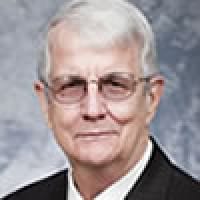
Dr. James Stock has been honored internationally three separate times for his achievements in supply chain and logistics management by the industry’s leading professional organizations. This year, he will receive the Supply Chain Management Professionals’ Distinguished Service Award – the highest honor that an individual can receive for their achievements in supply chain and logistics management. In addition, he will also be honored with the Special Lifetime Logistics Service Award by Yasar University in Izmir, Turkey and the 9th International Logistics and Supply Chain Congress for his outstanding achievement and continuous contributions to the field.
During the course of his 35-year career, Stock has also been honored with, DC Velocity magazine’s “Rainmaker for 2006” and has been awarded the Eccles Medal and the Armitage Medal by SOLE – The International Society of Logistics.
Stock has more than 150 publications in the field. He has authored six books and his publications have been translated into five different languages – Chinese, Czech, Portuguese, Russian, and Thai. He has also traveled to 46 countries on six continents to conduct research, lecture, or do consulting work for various organizations and universities.
Before coming to USF in 1989, Stock, the Frank Harvey Endowed Professor of Marketing at the College of Business, taught at Michigan State University, the Air Force Institute of Technology, the University of Oklahoma, and the University of Notre Dame. He holds a BS and MBA from the University of Miami (Florida) and a PhD from The Ohio State University. Stock is an active member of numerous professional organizations, former editor of the Journal of Business Logistics and International Journal of Physical Distribution & Logistics Management, serves on many international editorial review boards, and is on the USF Honors and Awards committee.

Ken Ackerman has been active in logistics and warehousing management for his entire career. Before entering the consulting field, he was chief executive of Distribution Centers, Inc., a public warehousing company that is now part of Exel Logistics USA. In 1980, Ackerman sold the company and joined the management consulting division of Coopers & Lybrand. In 1981, he formed the Ackerman Company, a management advisory service. Ken is the editor and publisher of Warehousing Forum, a monthly subscription newsletter. His newest books are Lean Warehousing and Fundamentals of Supply Chain Management, both published in 2007. His other recent publications include Auditing Warehouse Performance and Warehousing Tips. Harvard Business Review published “Making Warehousing More Efficient,” co-authored with Professor Bernard J. LaLonde. The New York Times published his bylined article “Just In Time, Right For Retail.” He is the author of numerous other articles dealing with warehousing and management.
Some additional credentials – B.A., Princeton University M.B.A., Harvard University. Council of Supply Chain Management Professionals – Past President Warehousing Education and Research Council – Founder
